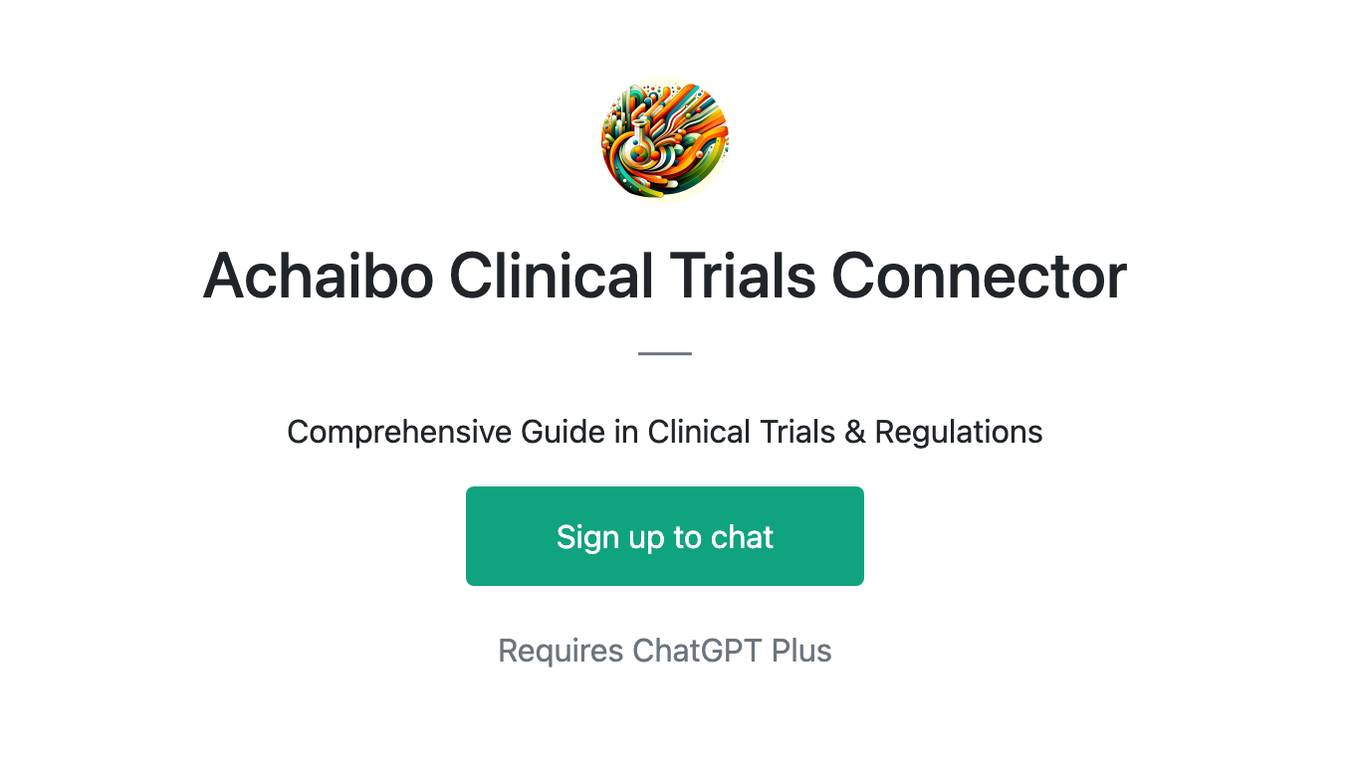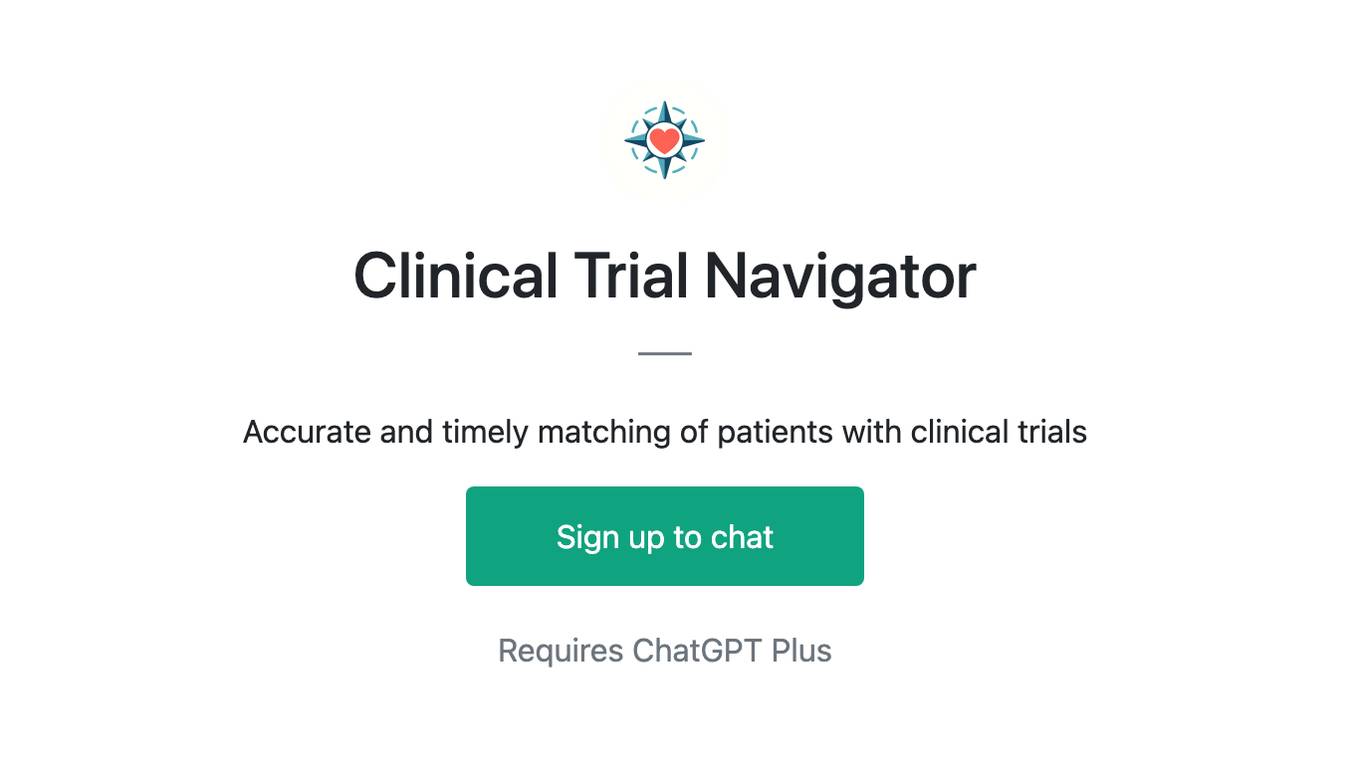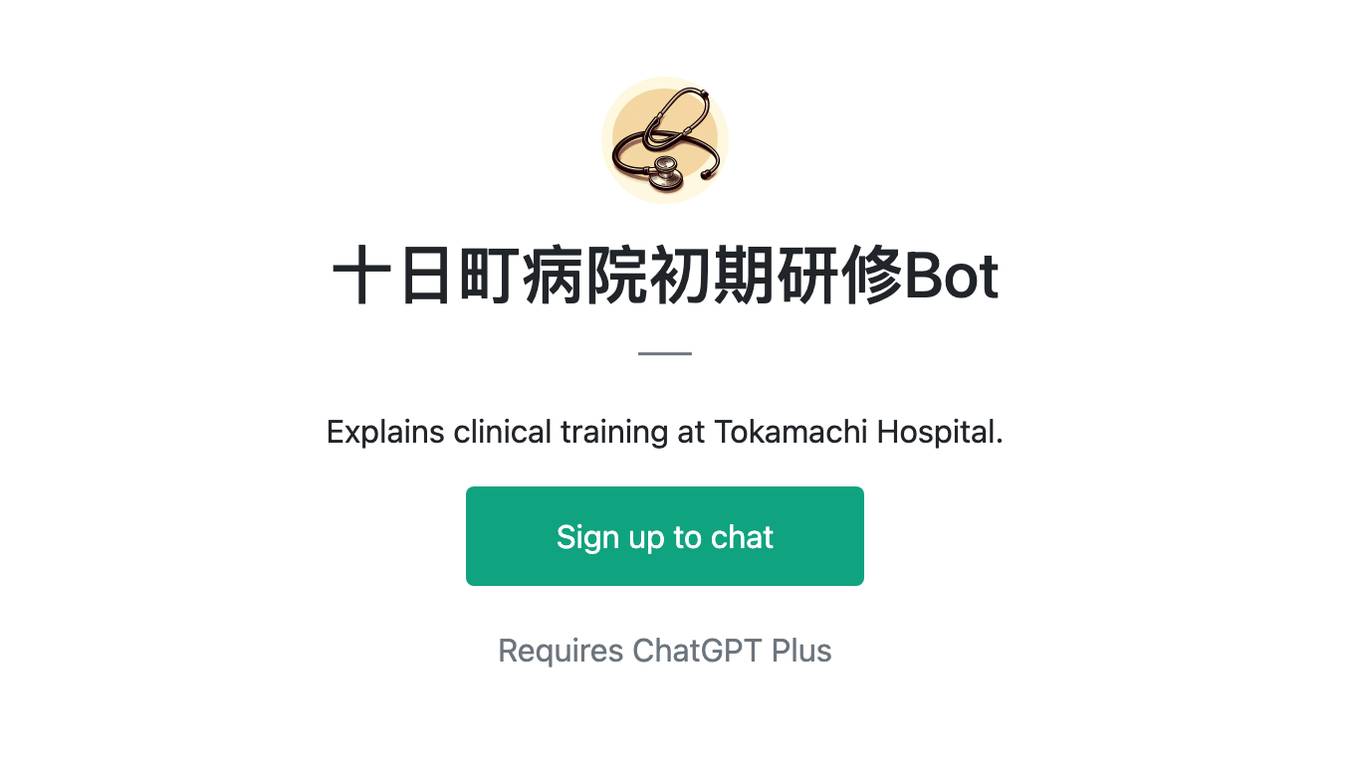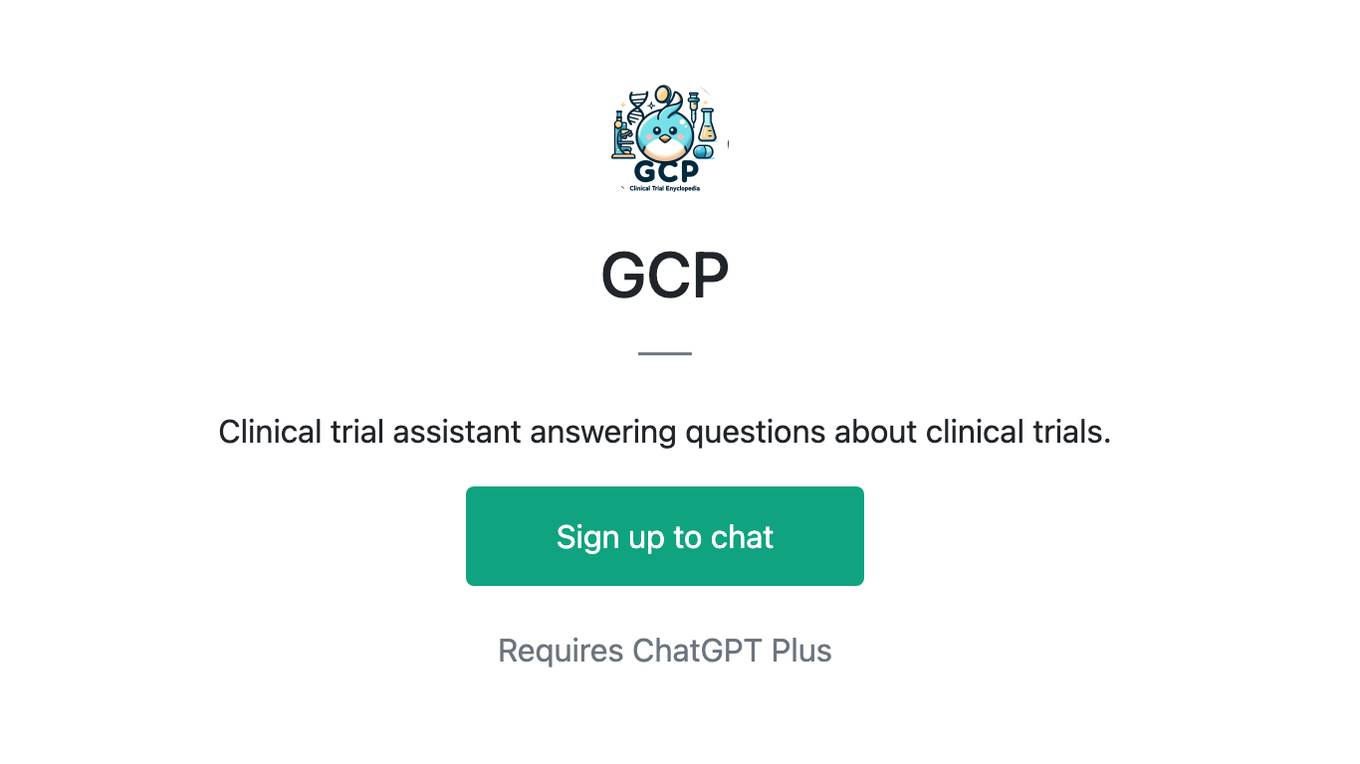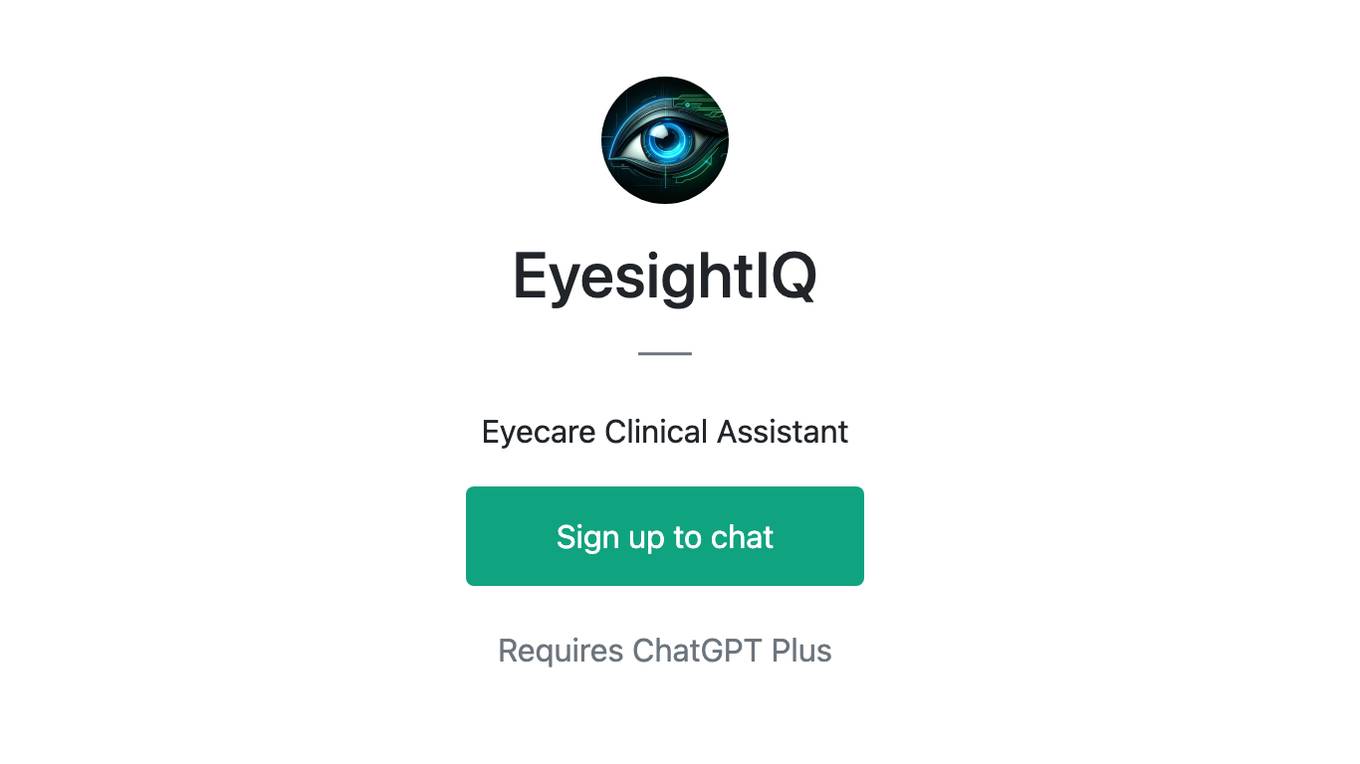Best AI tools for< Clinician >
Infographic
20 - AI tool Sites
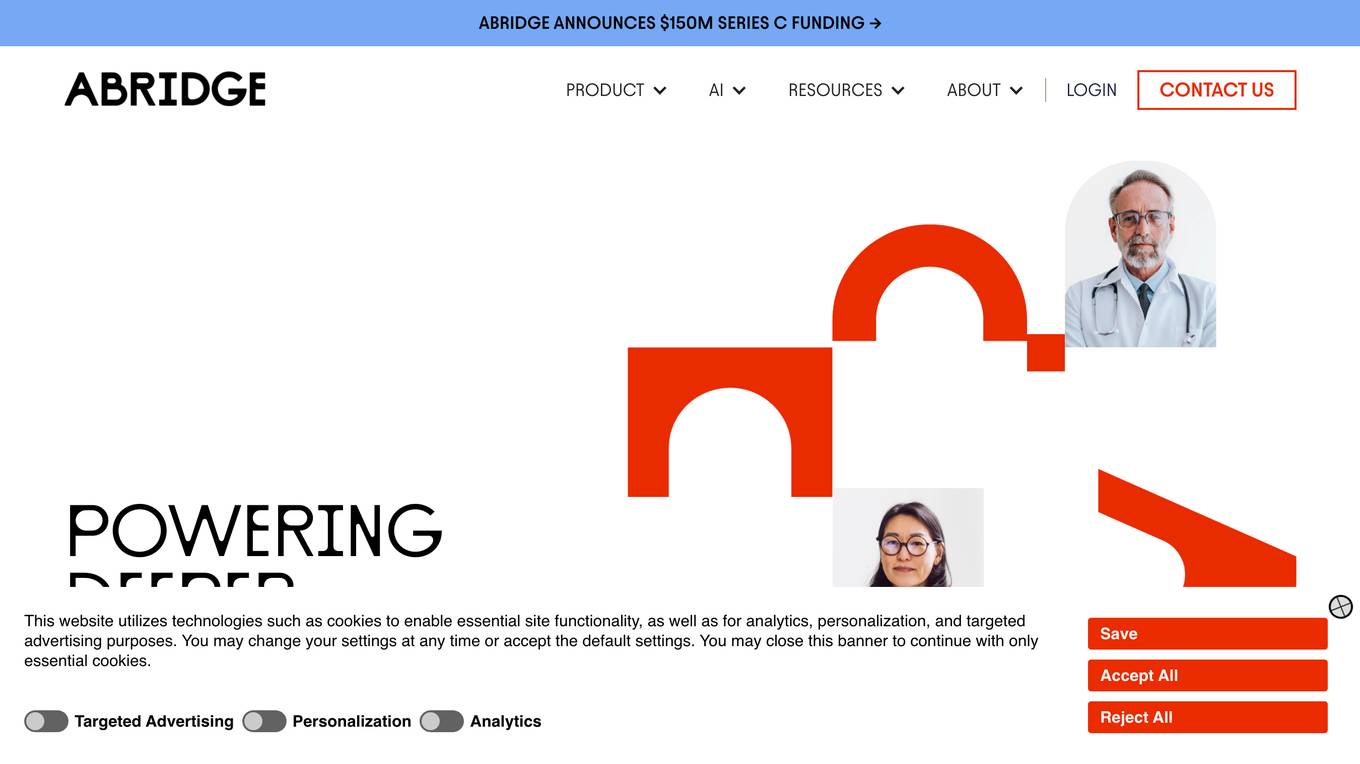
Abridge
Abridge is an AI application that provides generative AI for clinical conversations. It transforms patient-clinician conversations into contextually aware, clinically useful, and billable AI-generated notes. The platform is trusted by the largest healthcare systems and aims to measurably improve outcomes for clinicians, nurses, and revenue cycle teams at scale. Abridge offers an enterprise-grade AI solution for clinical conversations, leading the way in healthcare AI infrastructure.
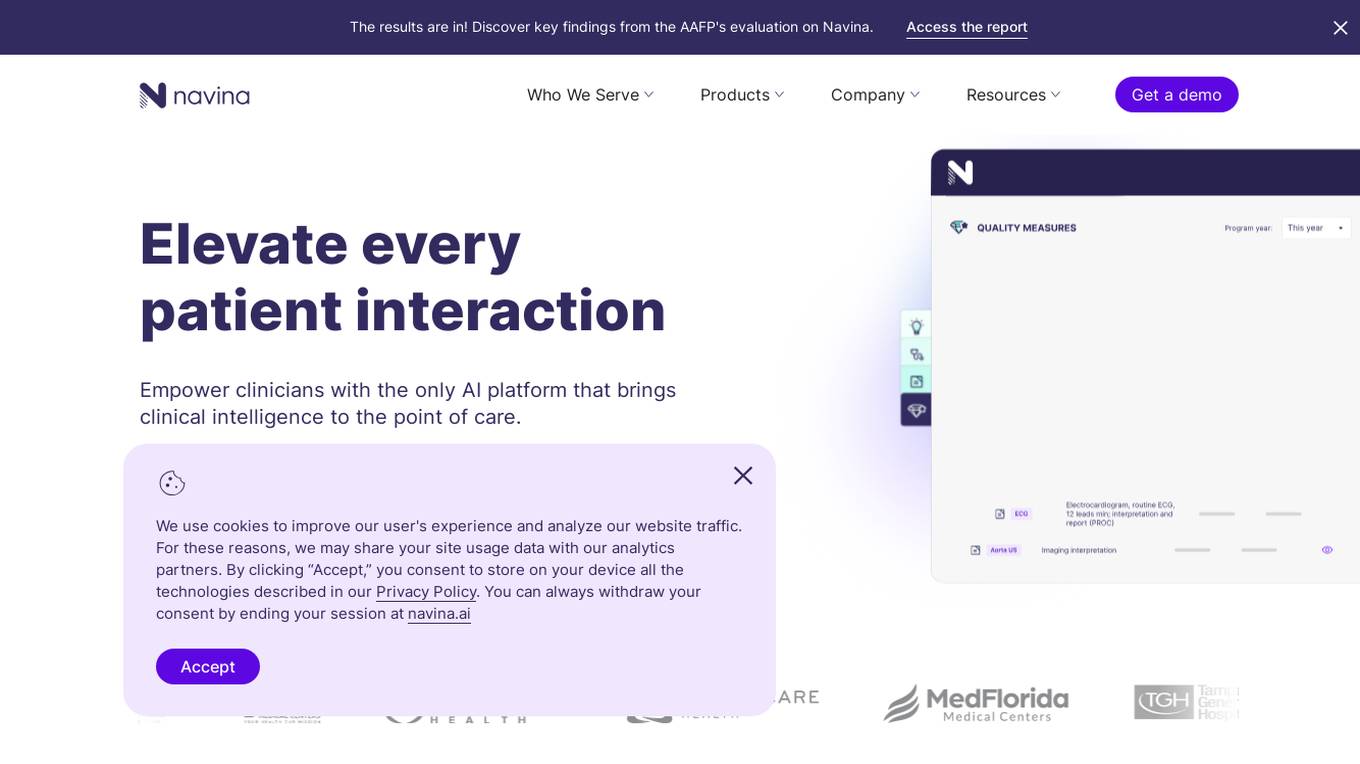
Navina AI
Navina AI is a clinician-first AI platform designed to streamline patient care by providing key insights and actionable recommendations to healthcare providers, ACOs, MSOs, and health plans. The platform leverages proprietary AI technology to improve clinical decision-making, reduce administrative burden, and enhance quality management and risk adjustment processes. Navina AI offers efficient chart review, accurate risk adjustment, streamlined quality management, robust analytics, and a user-friendly interface that integrates seamlessly into the clinical workflow.
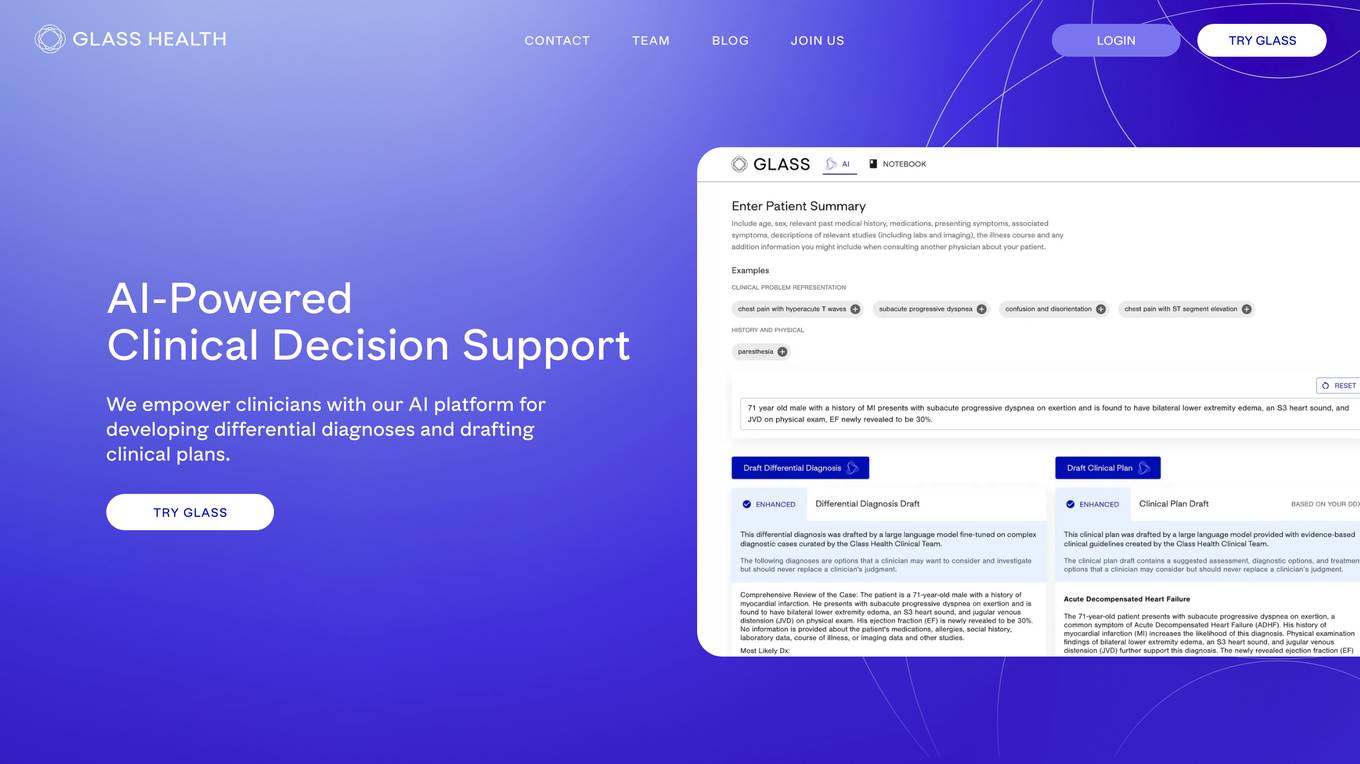
Glass Health
Glass Health is an AI-powered clinical decision support platform that empowers clinicians by providing tools to develop differential diagnoses and draft clinical plans. The platform combines cutting-edge AI technology with evidence-based medical knowledge to streamline diagnostic decisions and optimize clinician workflows. Glass Health's mission is to leverage technology to enhance the practice of medicine, increase diagnostic accuracy, implement evidence-based medicine, promote health equity, and improve patient outcomes globally. The platform is built by clinicians, for clinicians, with a deep commitment to safety, ethics, and alignment.
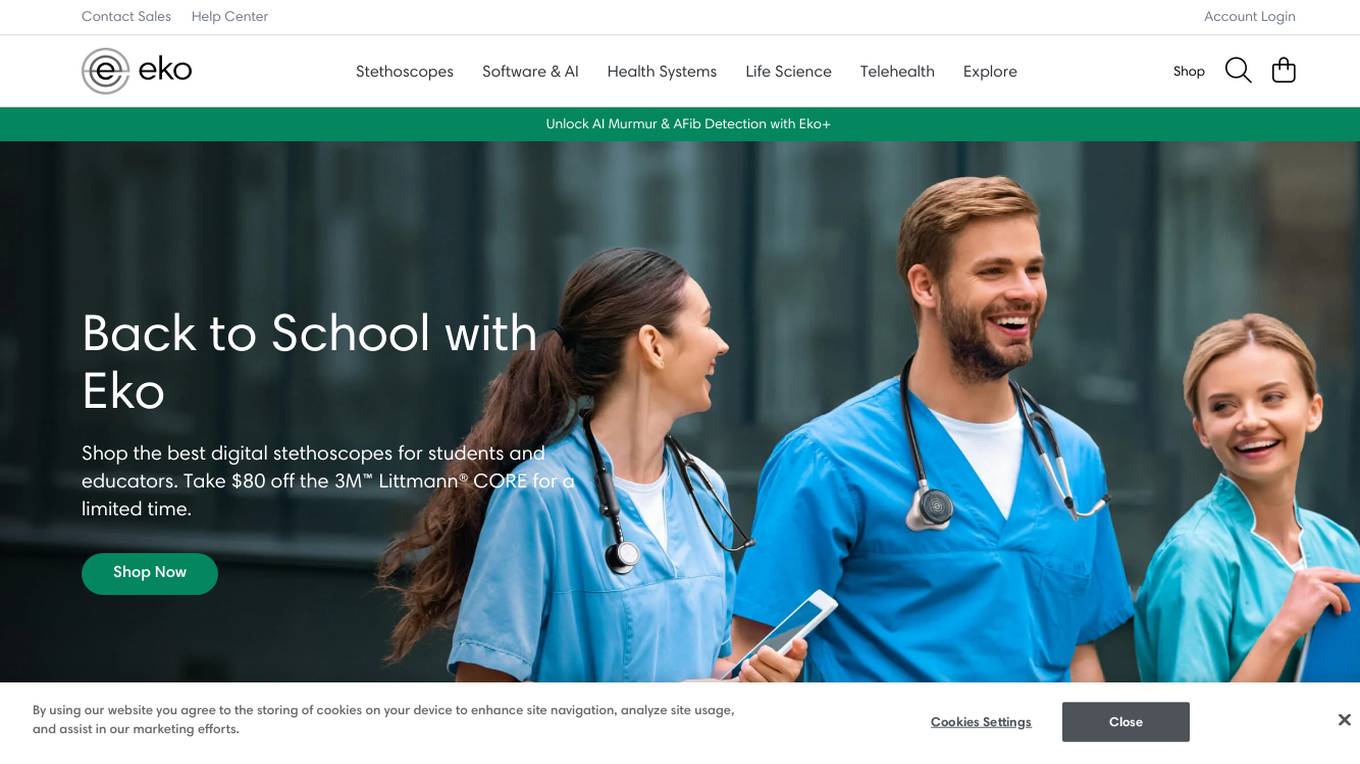
Eko
Eko is a digital stethoscope company that offers AI disease detection and telehealth solutions. Their products include digital stethoscopes with AI capabilities, mobile apps for visualization, and enterprise solutions for health systems. Eko aims to provide clinicians with advanced tools for cardiac and pulmonary disease detection, improving patient care and outcomes. The company also offers educational resources, customer stories, and news updates related to healthcare technology.
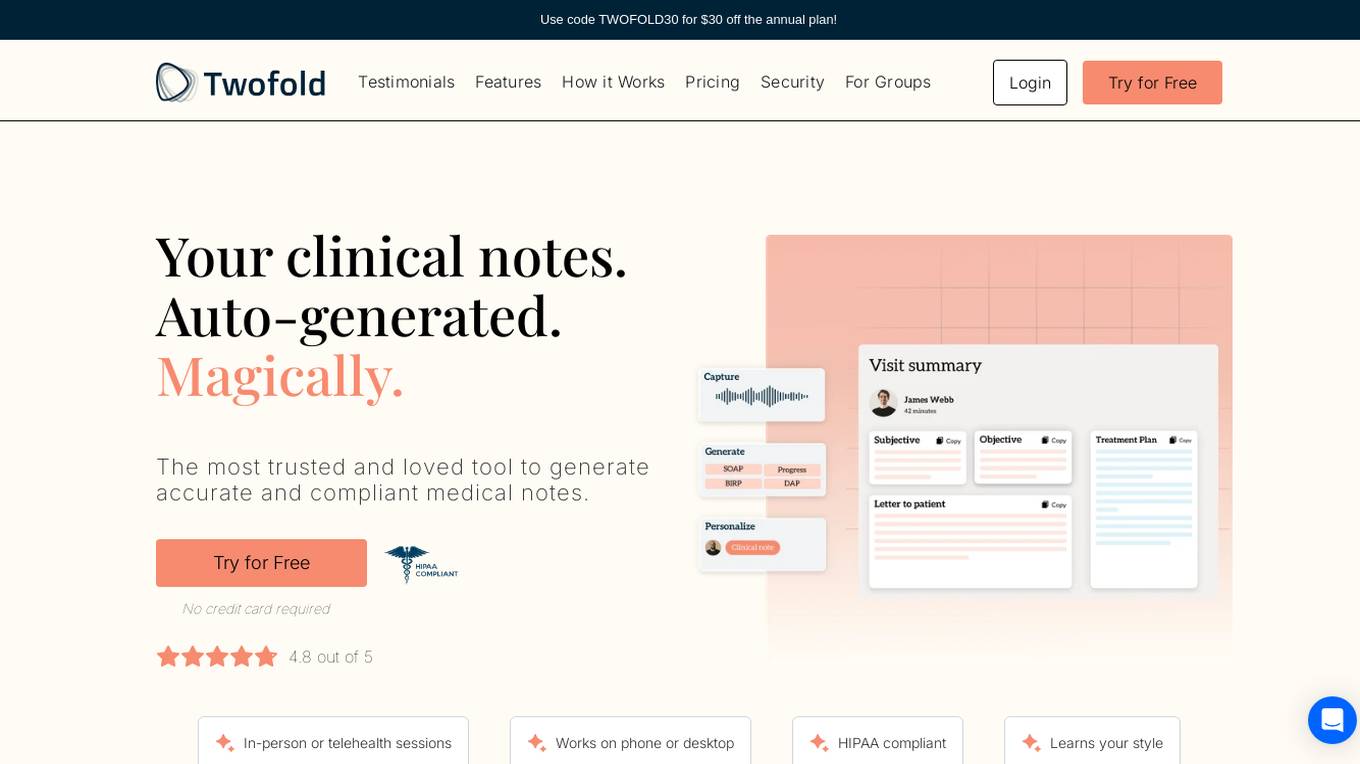
Twofold Health
Twofold Health is an AI medical scribe tool designed for clinicians to generate accurate and compliant medical notes effortlessly. It is built by clinicians for clinicians, offering a secure, personalized, and super simple solution that learns your writing style and improves over time. The tool is HIPAA and HITECH compliant, ensuring the security and confidentiality of patient and clinician data. With features like capturing conversations, reviewing and editing notes, and sending auto-generated patient instructions, Twofold Health aims to reduce burnout and improve patient care by allowing clinicians to focus on patients rather than paperwork.
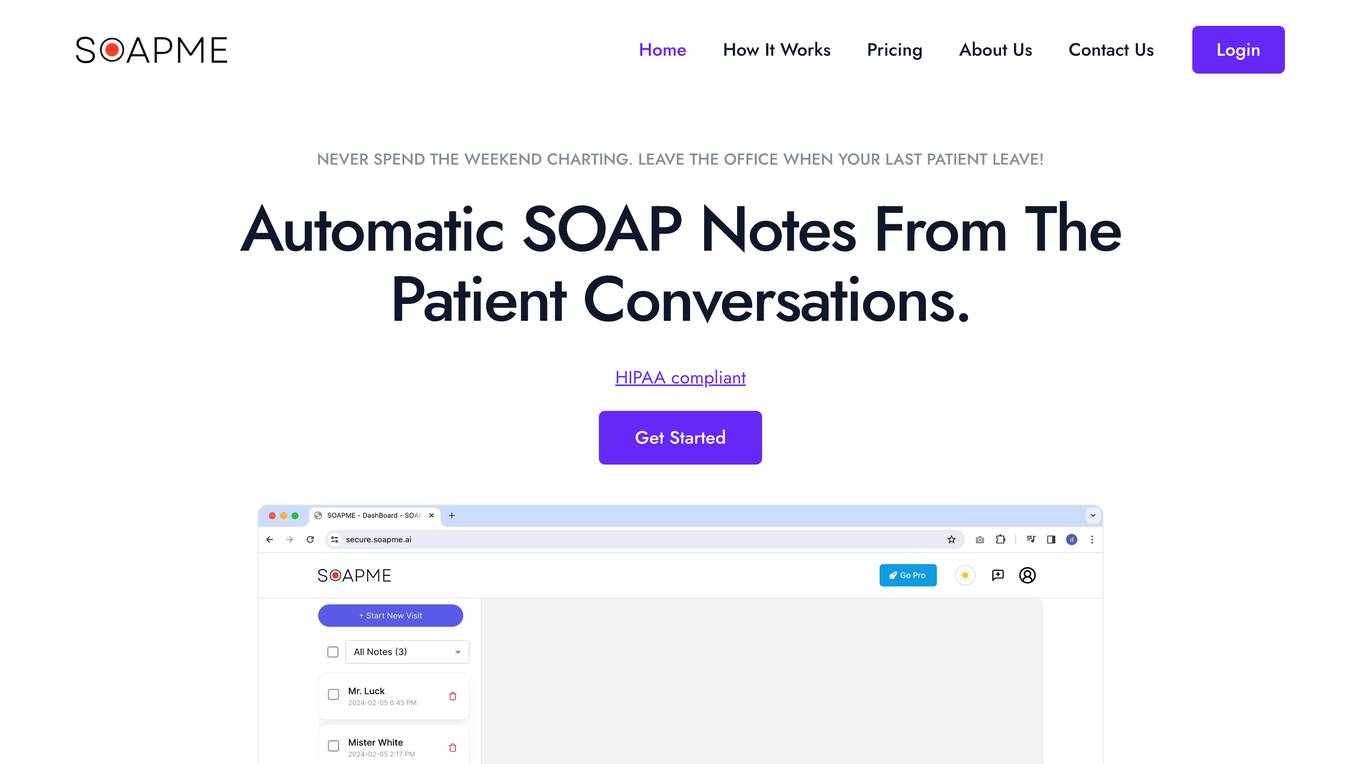
SOAPME.AI
SOAPME.AI is an AI-powered SAAS application that helps clinicians generate accurate and efficient SOAP notes from patient conversations. With its HIPAA-compliant technology, SOAPME ensures fast and secure note-taking, allowing clinicians to focus more on patient care and reduce administrative burden.
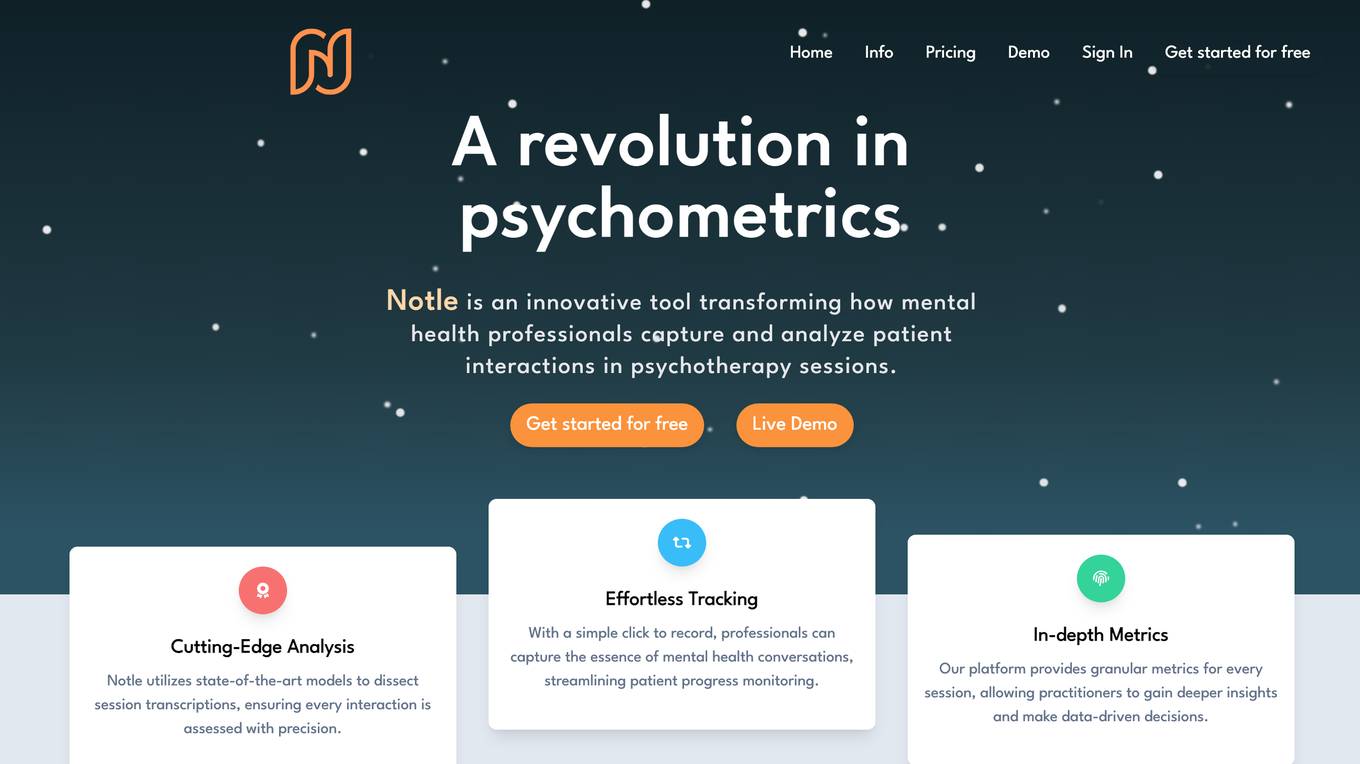
Notle AI
Notle AI is a first-of-its-kind platform designed to transform therapy practices for mental health professionals. It offers real-time analysis of therapy sessions, comprehensive psychological metrics tracking, smart documentation generation, progress analytics visualization, enterprise-level security, and personalized intervention suggestions based on patient data patterns. The platform seamlessly integrates into therapists' workflows to provide powerful insights without disrupting the therapeutic process. Notle AI also features advanced analytics for predictive mental health forecasting, early detection systems, personalized action plans, and proactive care strategies for better patient outcomes.
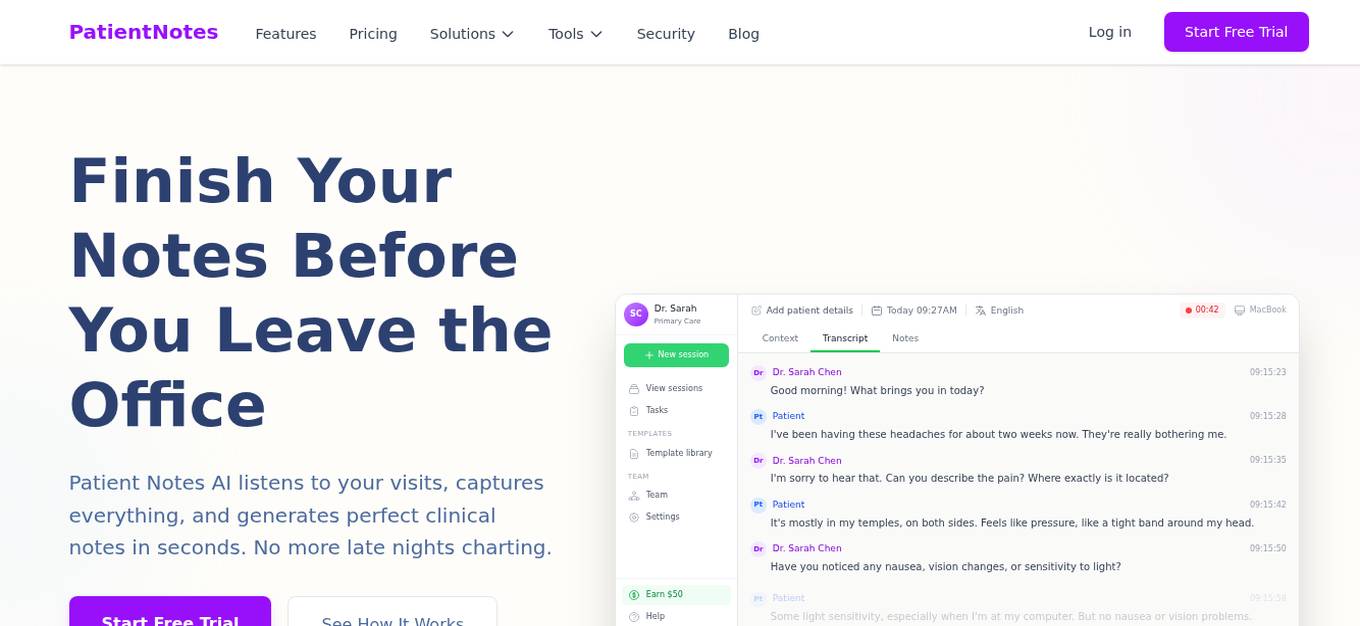
PatientNotes.ai
PatientNotes.ai is an AI-powered medical scribe application designed to assist healthcare providers in generating accurate clinical documentation efficiently. The application listens to patient encounters, transcribes conversations, and automatically generates structured notes, including SOAP notes, progress notes, and custom formats. PatientNotes.ai aims to streamline the documentation process, saving healthcare professionals valuable time and reducing the burden of manual data entry. The application is HIPAA compliant, ensuring the security and privacy of patient data. With features like customizable templates, ambient AI listening, easy EHR integration, and cross-device synchronization, PatientNotes.ai offers a comprehensive solution for clinical documentation needs.
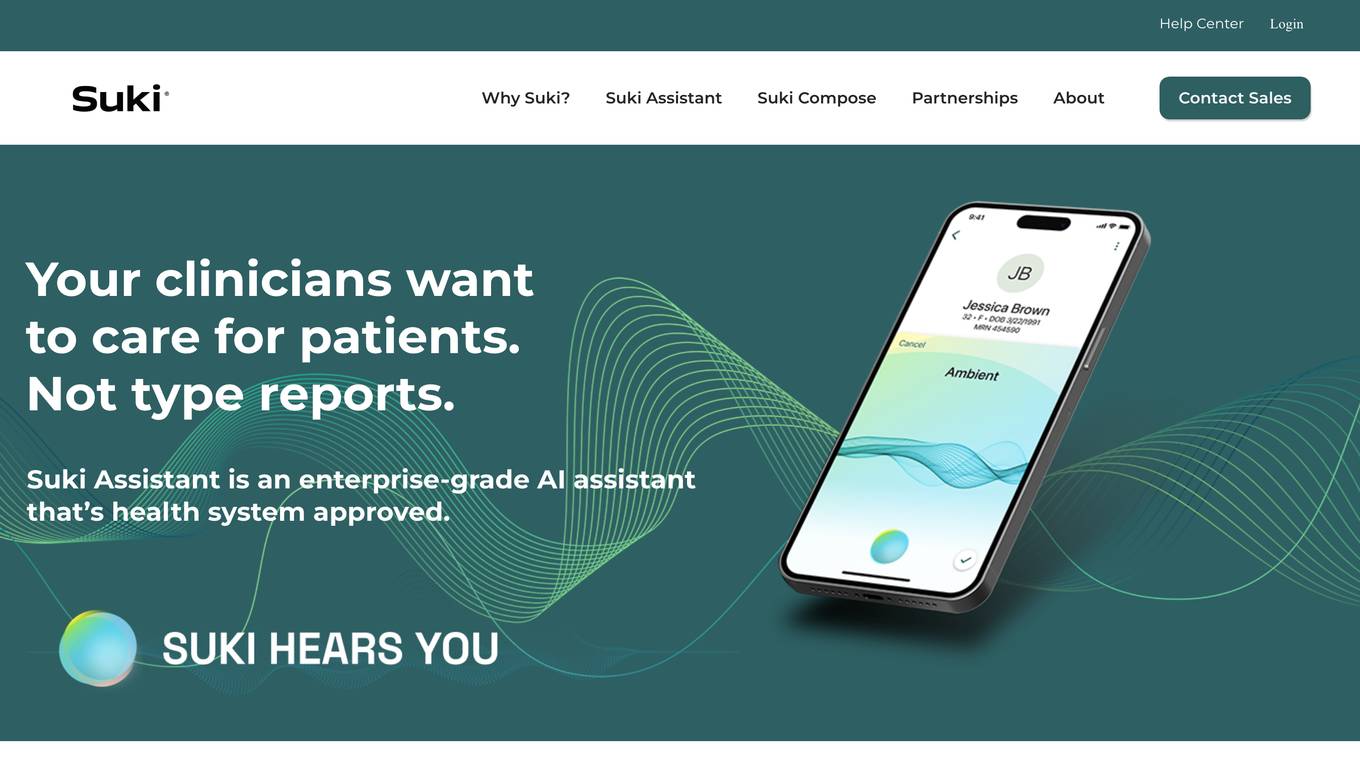
Suki
Suki is an Ambient Clinical Intelligence application designed to provide essential AI infrastructure for healthcare, enabling clinicians to streamline documentation processes, improve patient care, and enhance productivity. Suki goes beyond transcription to capture complete patient conversations, generate high-quality notes, and seamlessly integrate with Electronic Health Records (EHRs). The platform offers voice-enabled editing, problem-based charting, and real-time integrations with leading EHR systems, making it a comprehensive solution for healthcare professionals.
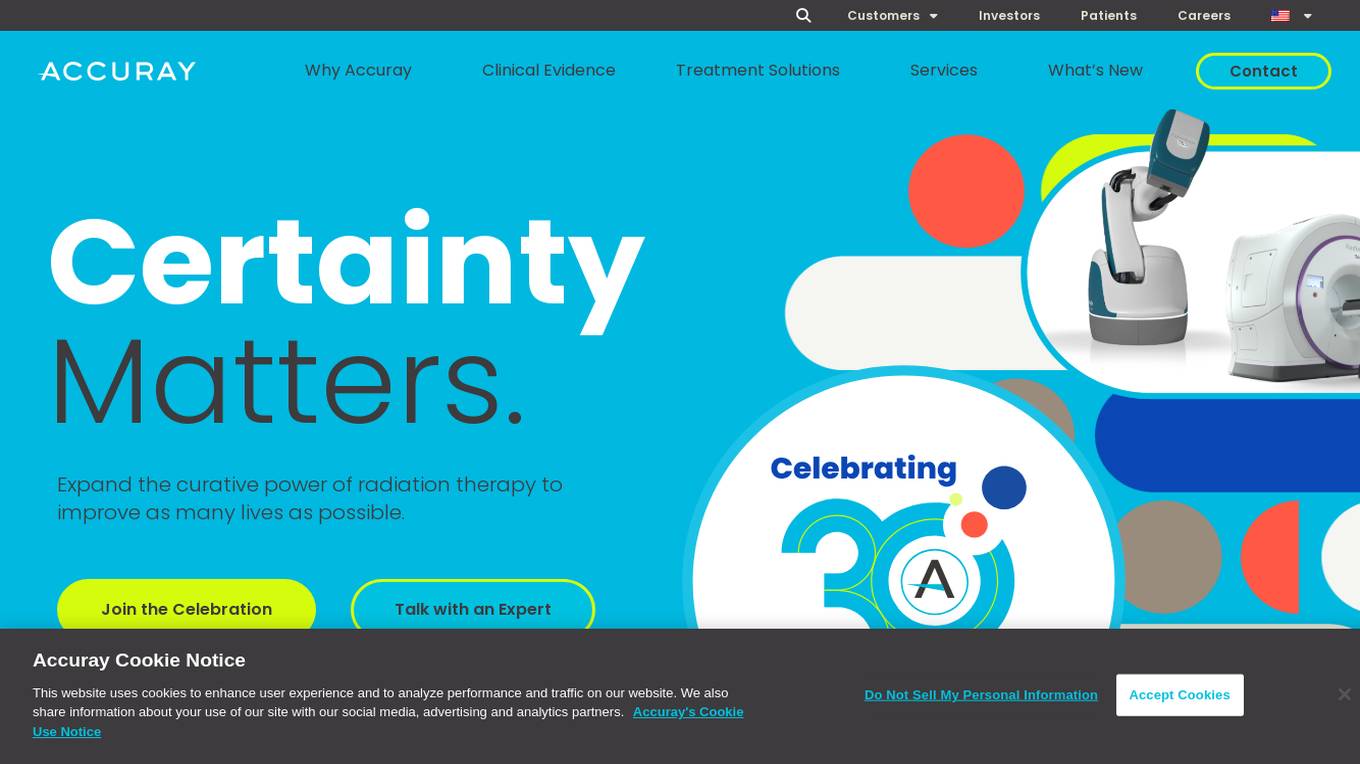
Accuray
Accuray Incorporated is a radiation oncology company that develops, manufactures, and sells radiation therapy systems and software for the treatment of cancer. Accuray's products are used by radiation oncologists to deliver precise and effective radiation therapy treatments to patients with a variety of cancers, including prostate cancer, breast cancer, lung cancer, and brain cancer. Accuray's mission is to expand the curative power of radiation therapy to improve as many lives as possible.
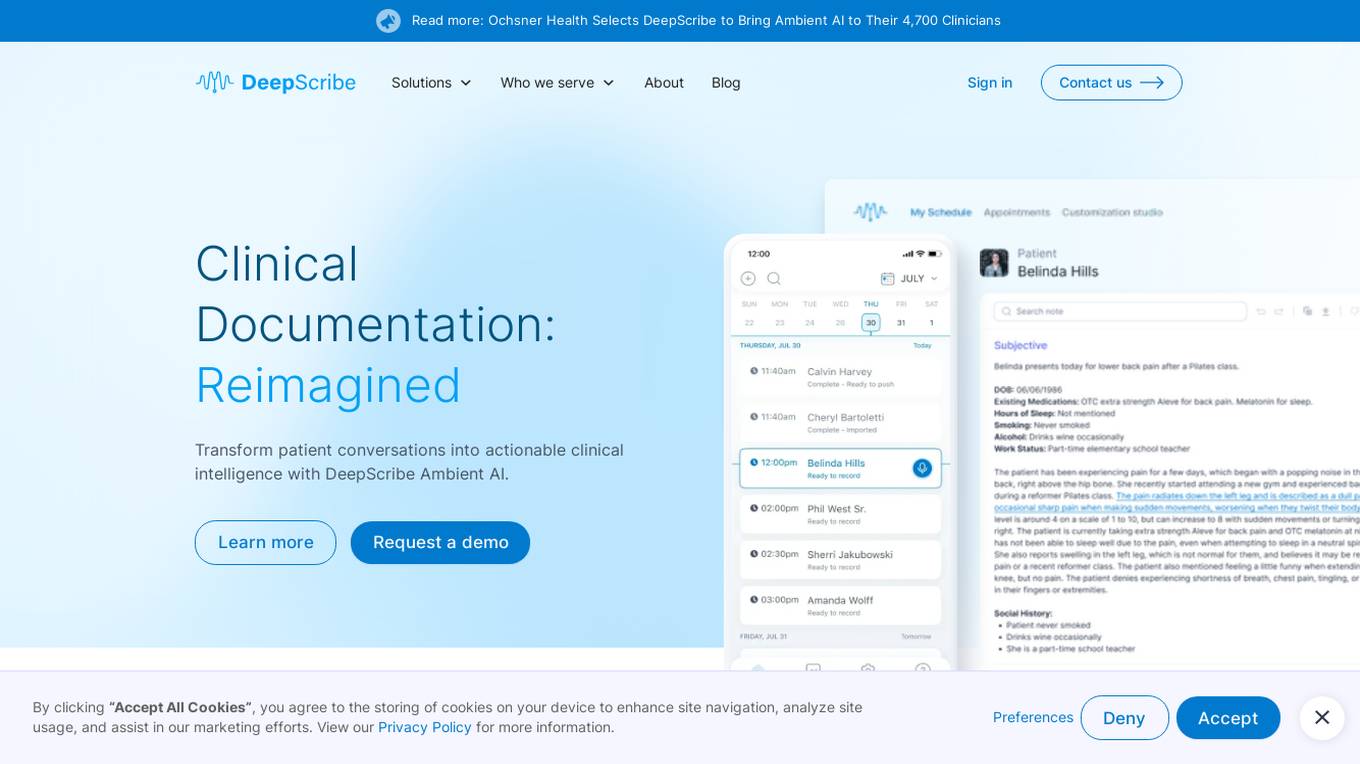
DeepScribe
DeepScribe is an AI medical scribe application that leverages advanced speech recognition technology to capture clinical conversations with extreme accuracy. It empowers clinicians and health systems with real-time AI insights, offers customization options to match provider workflows, and ensures trust and safety through features that promote AI transparency. DeepScribe is designed to save time, improve accuracy, drive adoption, and maximize revenue for doctors, hospitals, and health systems. The application is built for enterprise use, allowing users to unlock the power of AI and modernize their patient data strategy.
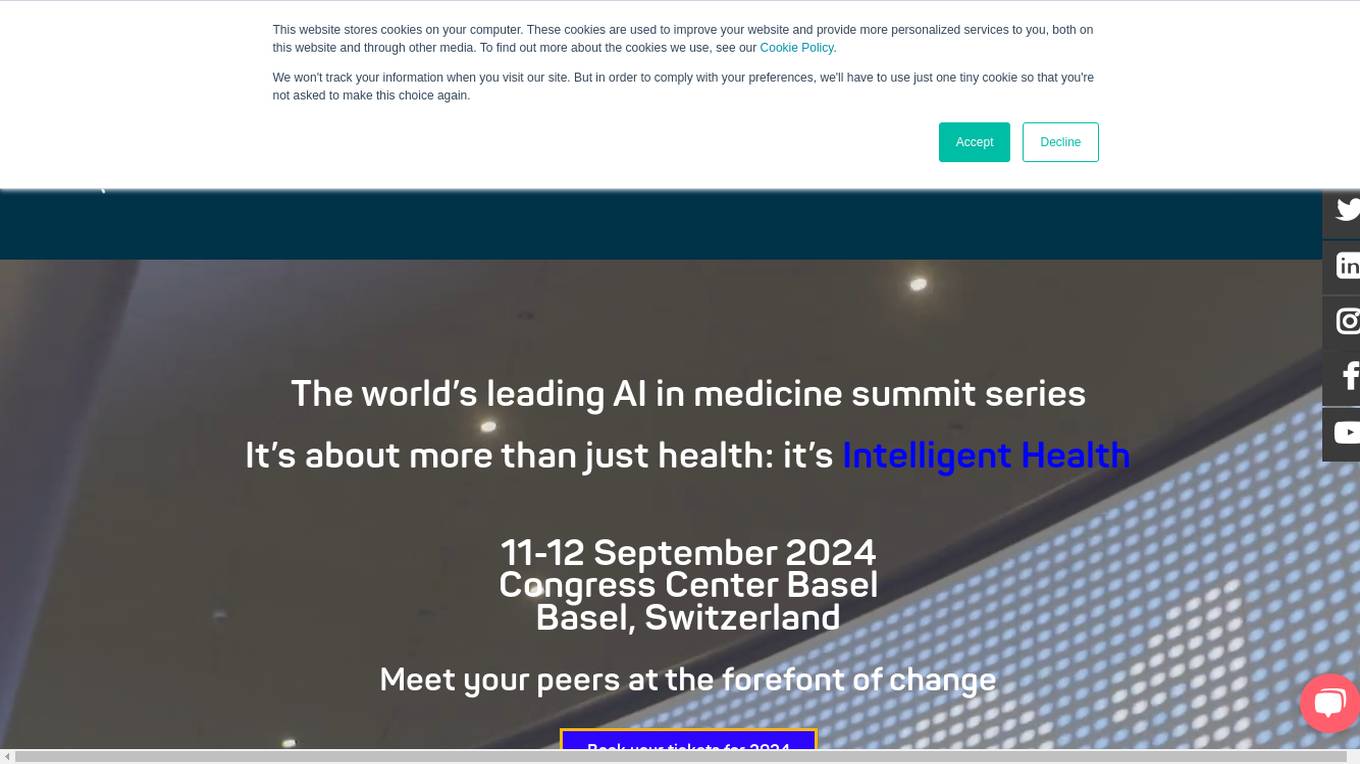
Intelligent Health
Intelligent Health is the world's leading AI in medicine summit series dedicated to saving lives with AI. The platform hosts a healthtech community committed to advancing pivotal conversations on AI in medicine and fostering global collaboration across the healthcare sector. With a comprehensive agenda offering access to expert voices, Intelligent Health expedites critical discussions on challenges, solutions, and innovations to facilitate key decision-making and impactful investments. The platform aims to ensure the safe, effective, and democratic adoption of AI in healthcare to improve global health outcomes for all.
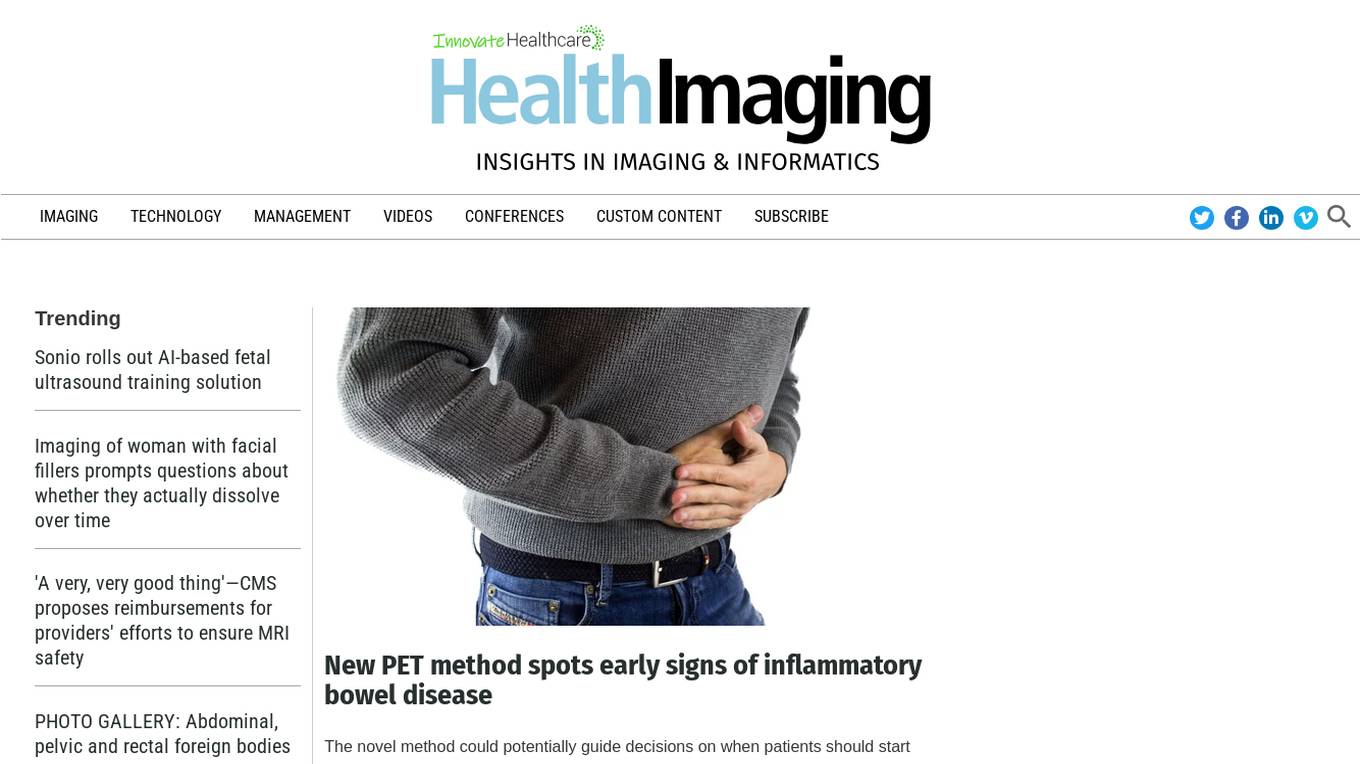
Health Imaging
Health Imaging is an AI-powered platform that focuses on providing cutting-edge solutions in medical imaging and healthcare management. The platform offers a wide range of features and tools that leverage artificial intelligence to enhance diagnostic accuracy, streamline workflows, and improve patient care. From advanced imaging technologies to AI-based training solutions, Health Imaging is at the forefront of innovation in the healthcare industry.
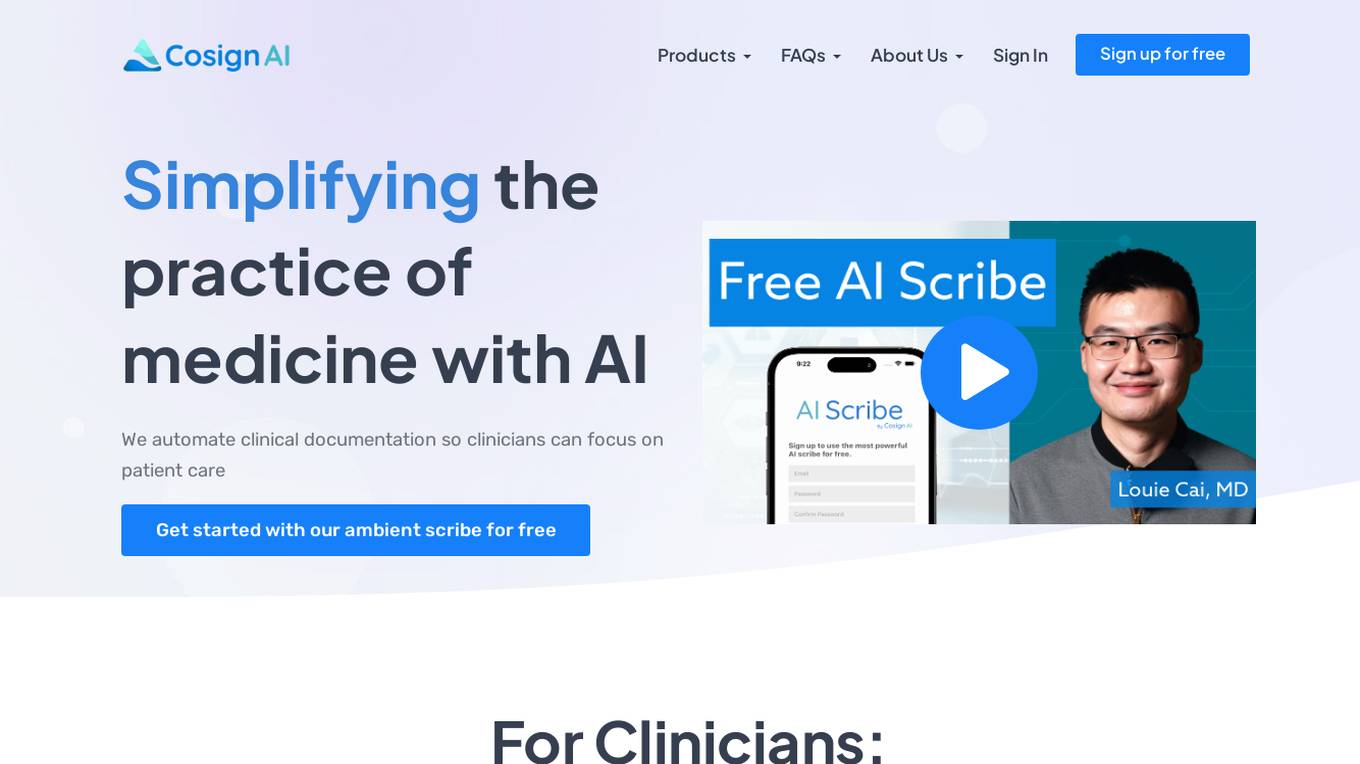
Cosign AI
Cosign AI is an AI application that optimizes clinical practices by automating clinical documentation through an ambient scribe. The tool transforms conversations and dictations into clinical notes using large language models and customizable templates. It prioritizes HIPAA compliance and data security, ensuring a secure infrastructure for storing and processing protected health information. Clinicians can save time, reduce burnout, and improve note quality with this innovative solution.
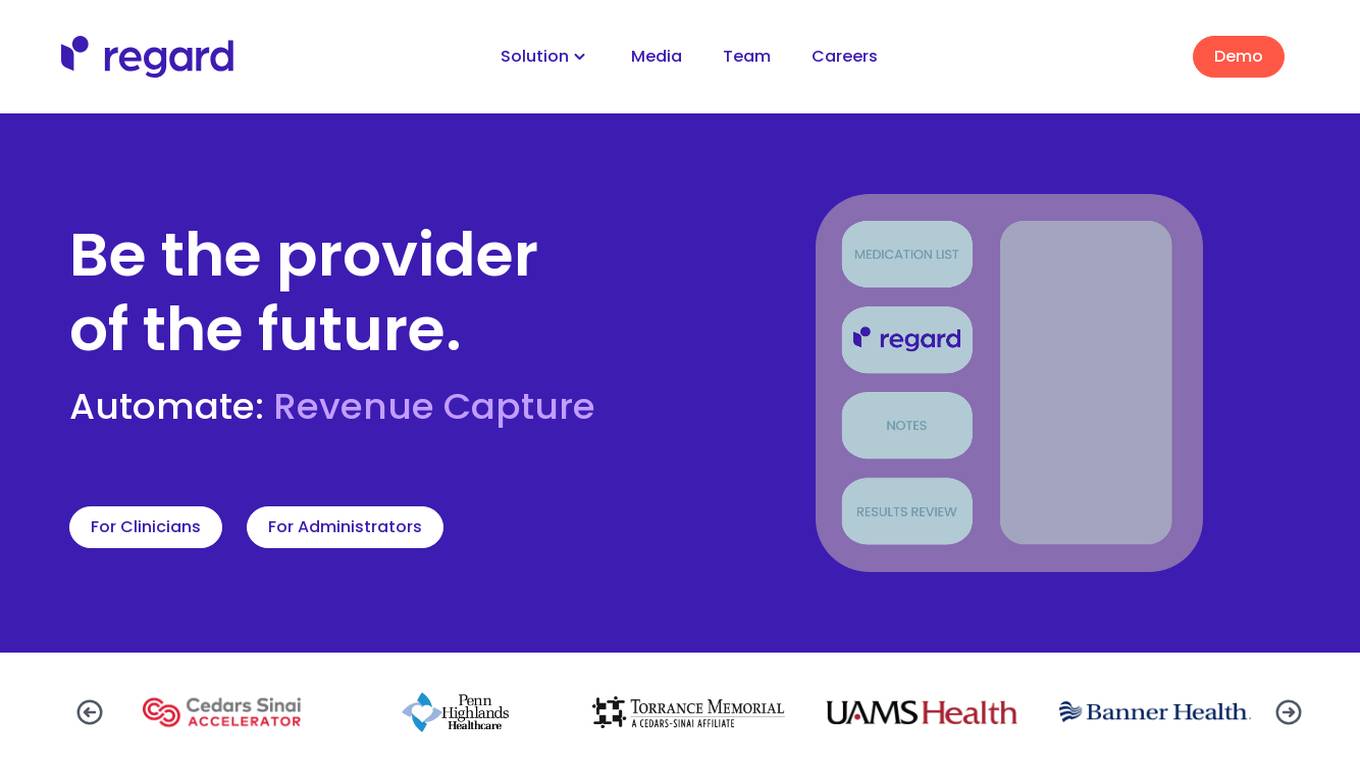
Regard
Regard is an AI-powered healthcare solution that automates clinical tasks, making it easier for clinicians to focus on patient care. It integrates with the EHR to analyze patient records and provide insights that can help improve diagnosis and treatment. Regard has been shown to improve hospital finances, patient safety, and physician happiness.
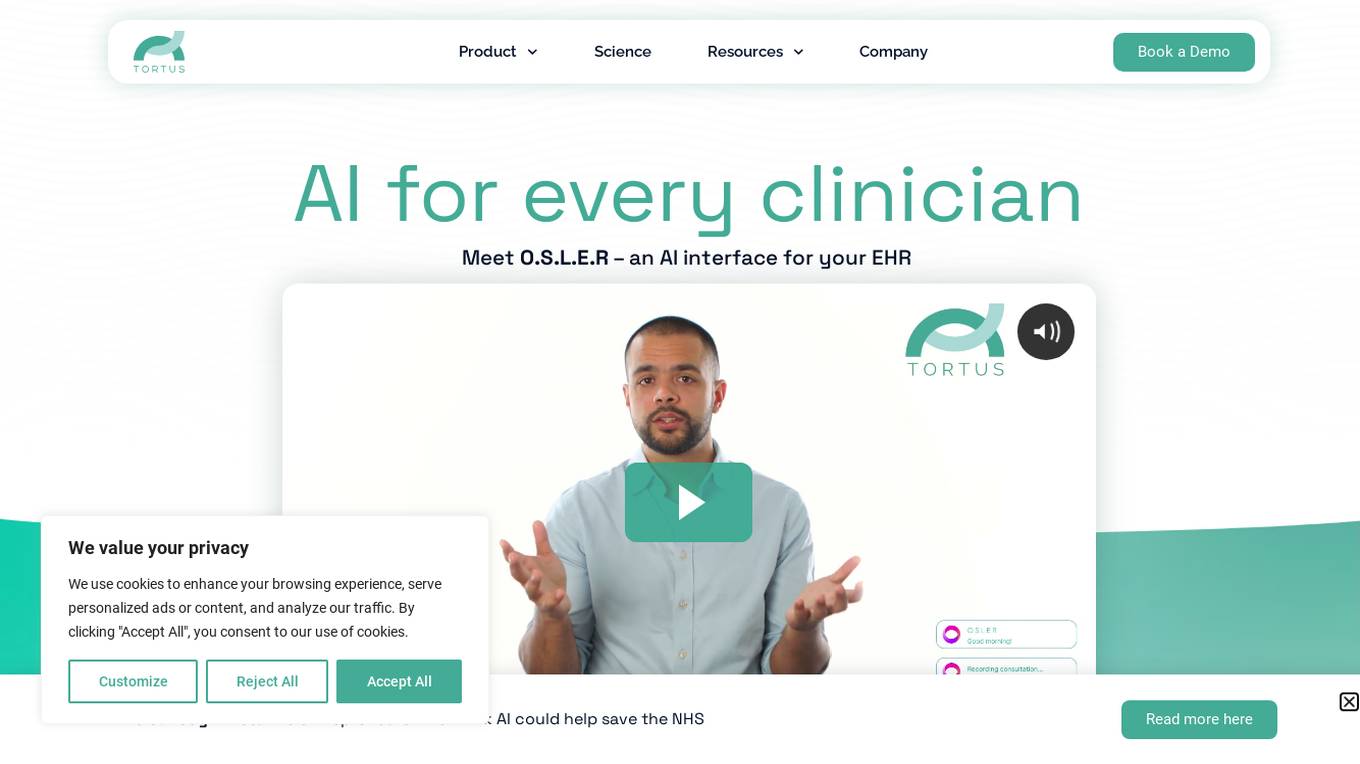
TORTUS
TORTUS is an AI application designed for doctors and clinicians, offering an AI interface for Electronic Health Records (EHR). It aims to provide faster, better, and kinder care by automating tasks such as record transcription, note generation, and clinical coding. The application is fully compliant with healthcare regulations and prioritizes data security. O.S.L.E.R. is positioned as a digital worker for digital work, enhancing patient outcomes and relieving clinician burnout through clinician-AI co-working.
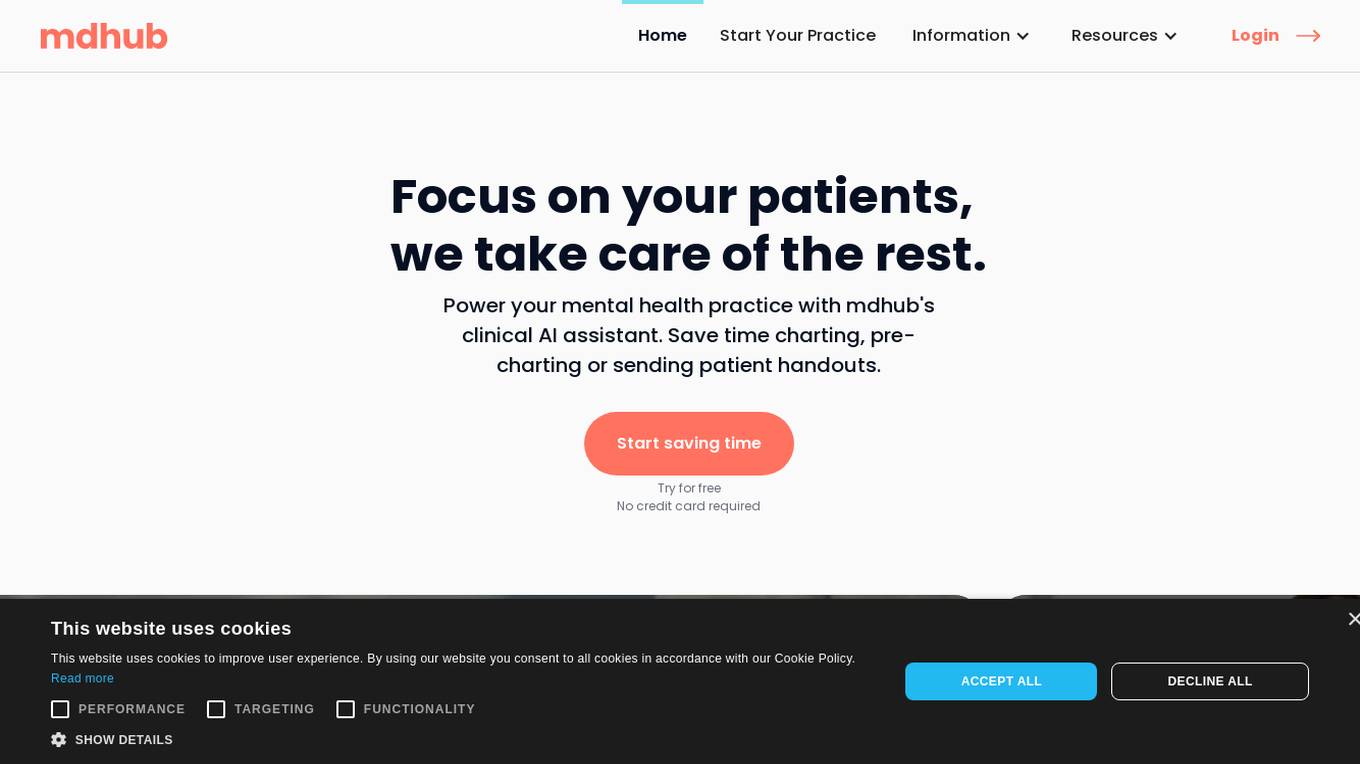
MDHub
MDHub is a clinical AI assistant designed to support behavioral health clinicians in their practice. It offers a user-friendly interface for seamless integration into workflows, time-saving features like instant audio transformation for charting, and personalized treatment plan recommendations. The application aims to enhance patient care by automating documentation tasks and improving efficiency in mental health practices.
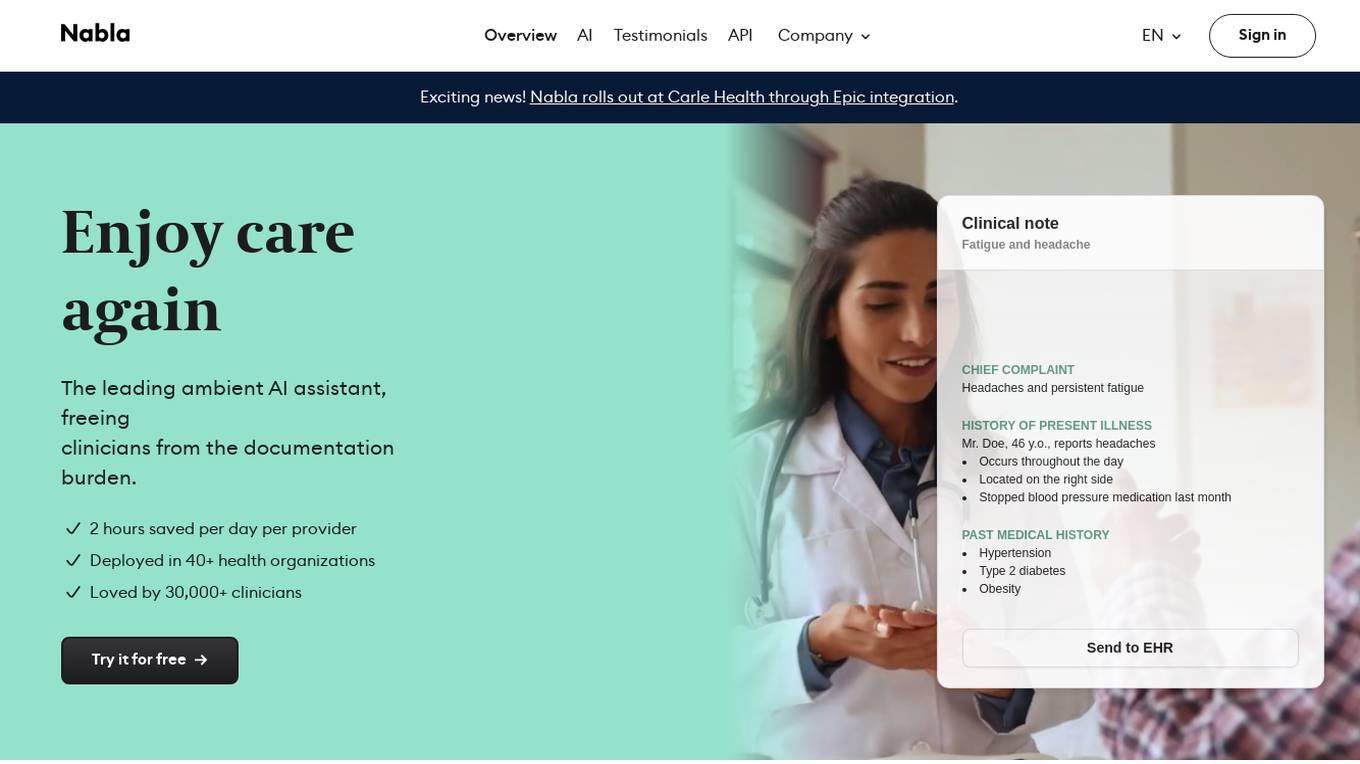
Nabla
Nabla is a leading ambient AI assistant designed to free clinicians from the burden of documentation. It saves clinicians 2 hours per day per provider by streamlining clinical documentation, allowing them to focus on patient care. With over 30,000 clinicians loving the application, Nabla provides detailed, accurate, and HIPAA-compliant visit or phone documentation in under a minute. The AI transcribe program is easy, convenient, and removes non-medical conversation, making it an indispensable tool for medical practitioners across various specialties.
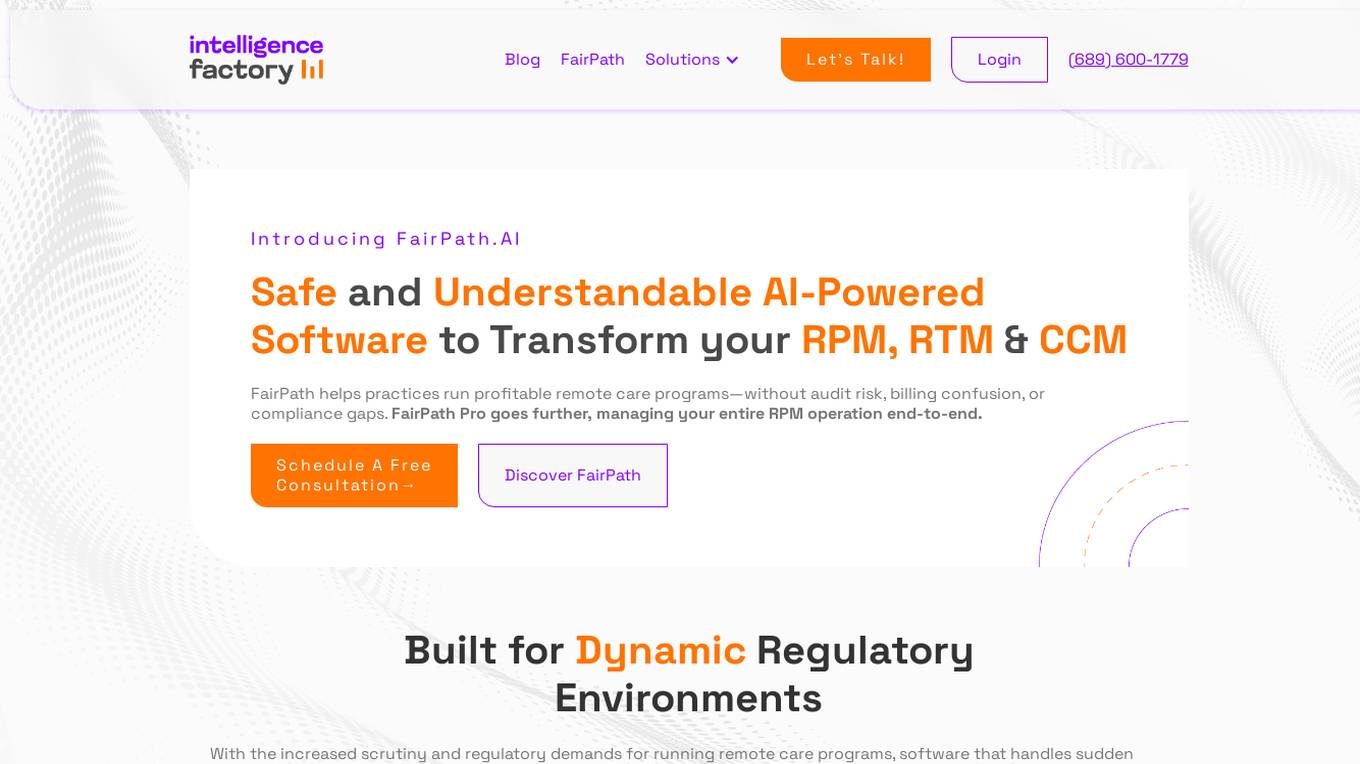
FairPath.AI
FairPath.AI is an AI-powered software designed for healthcare billing and remote care programs. It helps practices run profitable remote care programs by providing compliance management, patient engagement automation, audit-ready documentation, and real-time AI oversight. The software is built to handle dynamic regulatory environments and ensure HIPAA compliance. FairPath.AI offers end-to-end solutions for managing remote care programs efficiently and effectively.
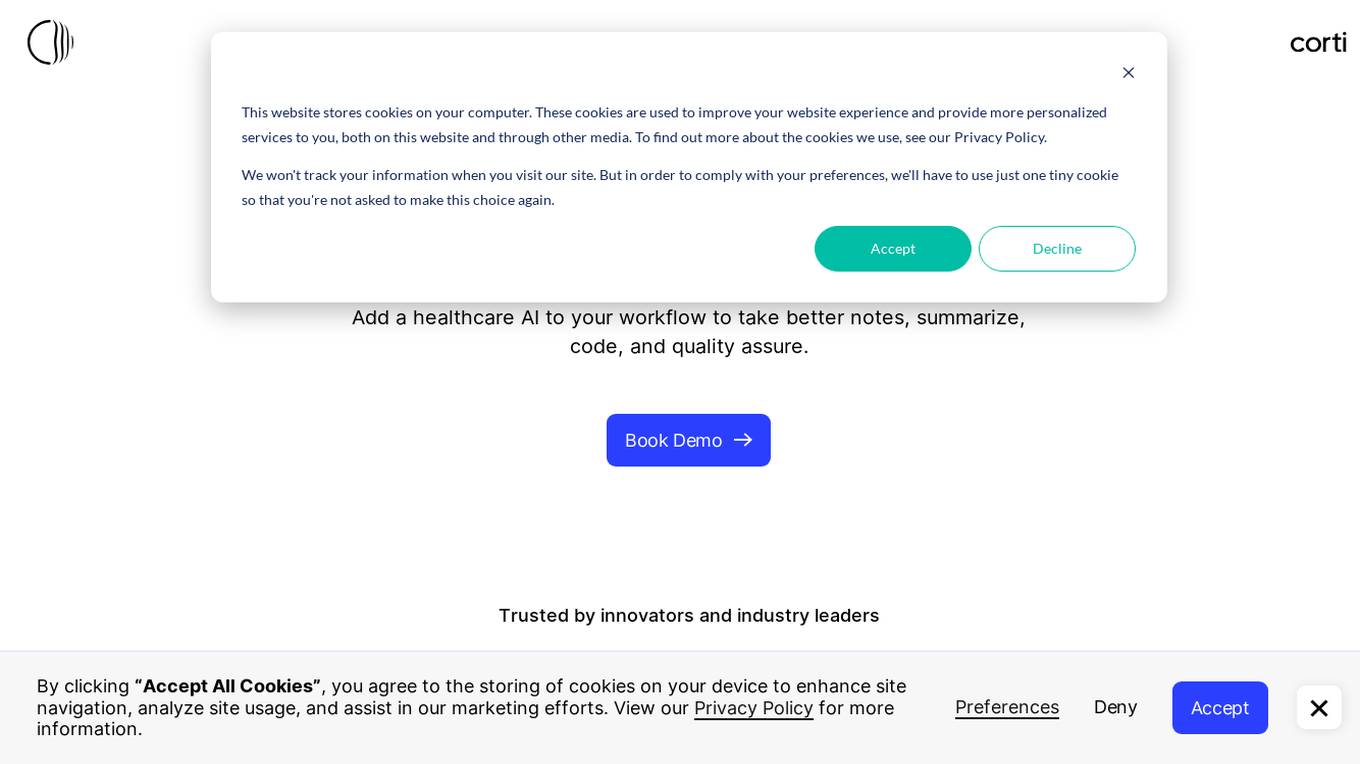
Corti
Corti is an AI platform that provides advanced capabilities for patient consultations. It offers features such as Co-Pilot, a proactive AI scribe and assistant for clinicians, and Mission Control, an AI-powered conversation recorder. Corti's AI tools support various healthcare tasks, including high precision procedure and diagnosis coding, context-aware assistants for clinicians, and support for multiple languages in speech and text. The platform is trusted by major hospitals and healthcare providers worldwide.
1 - Open Source Tools
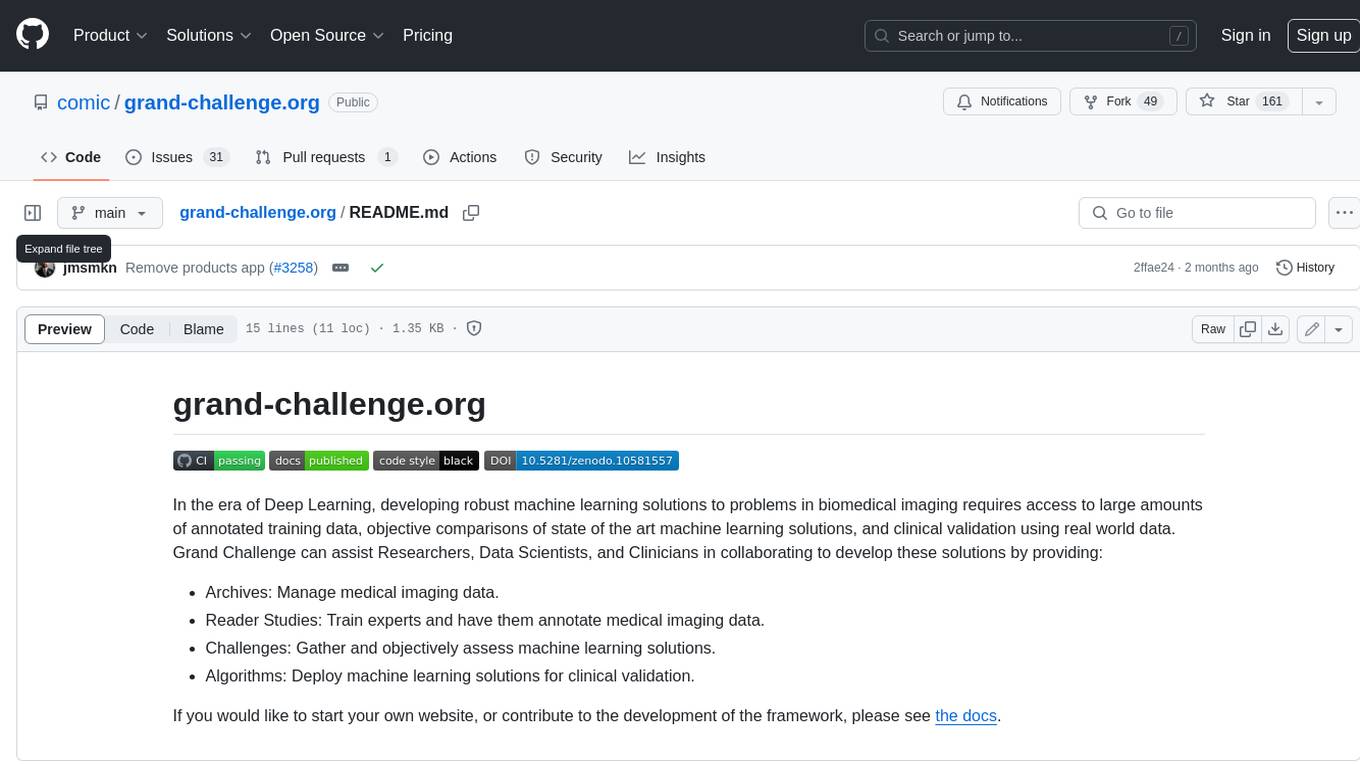
grand-challenge.org
Grand Challenge is a platform that provides access to large amounts of annotated training data, objective comparisons of state-of-the-art machine learning solutions, and clinical validation using real-world data. It assists researchers, data scientists, and clinicians in collaborating to develop robust machine learning solutions to problems in biomedical imaging.
20 - OpenAI Gpts
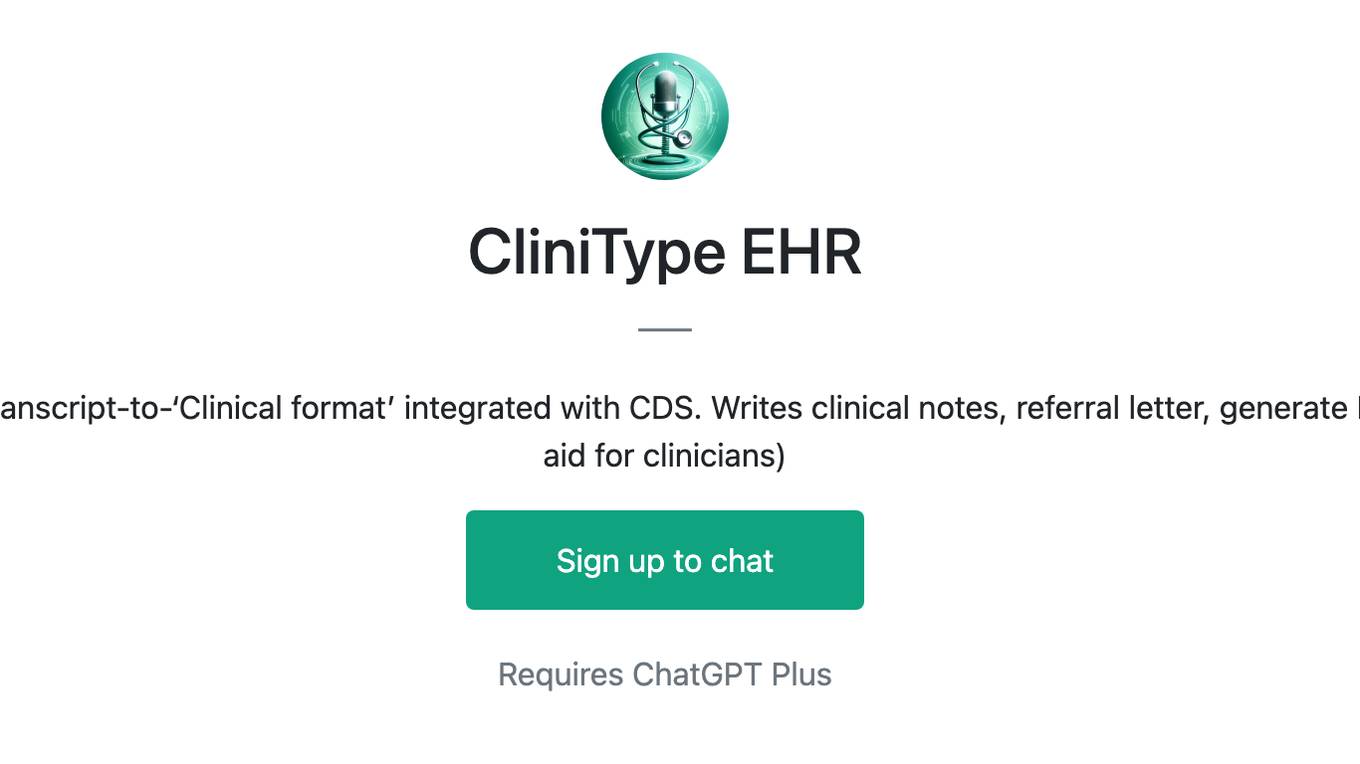
CliniType EHR
Voice-to-text, Vision-to-text transcription, Transcript-to-‘Clinical format’ integrated with CDS. Writes clinical notes, referral letter, generate PDF,prepare discharge summary. (Ultimate aid for clinicians)
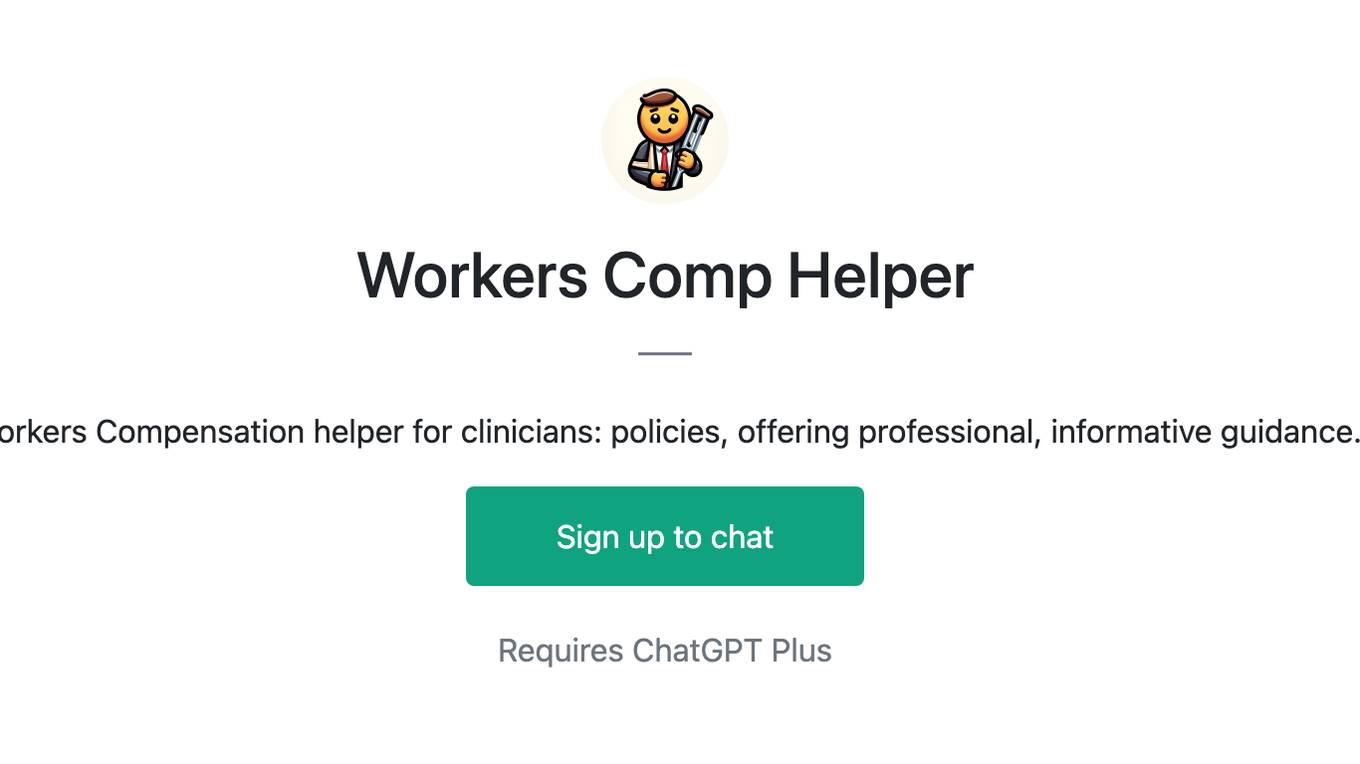
Workers Comp Helper
Workers Compensation helper for clinicians: policies, offering professional, informative guidance.
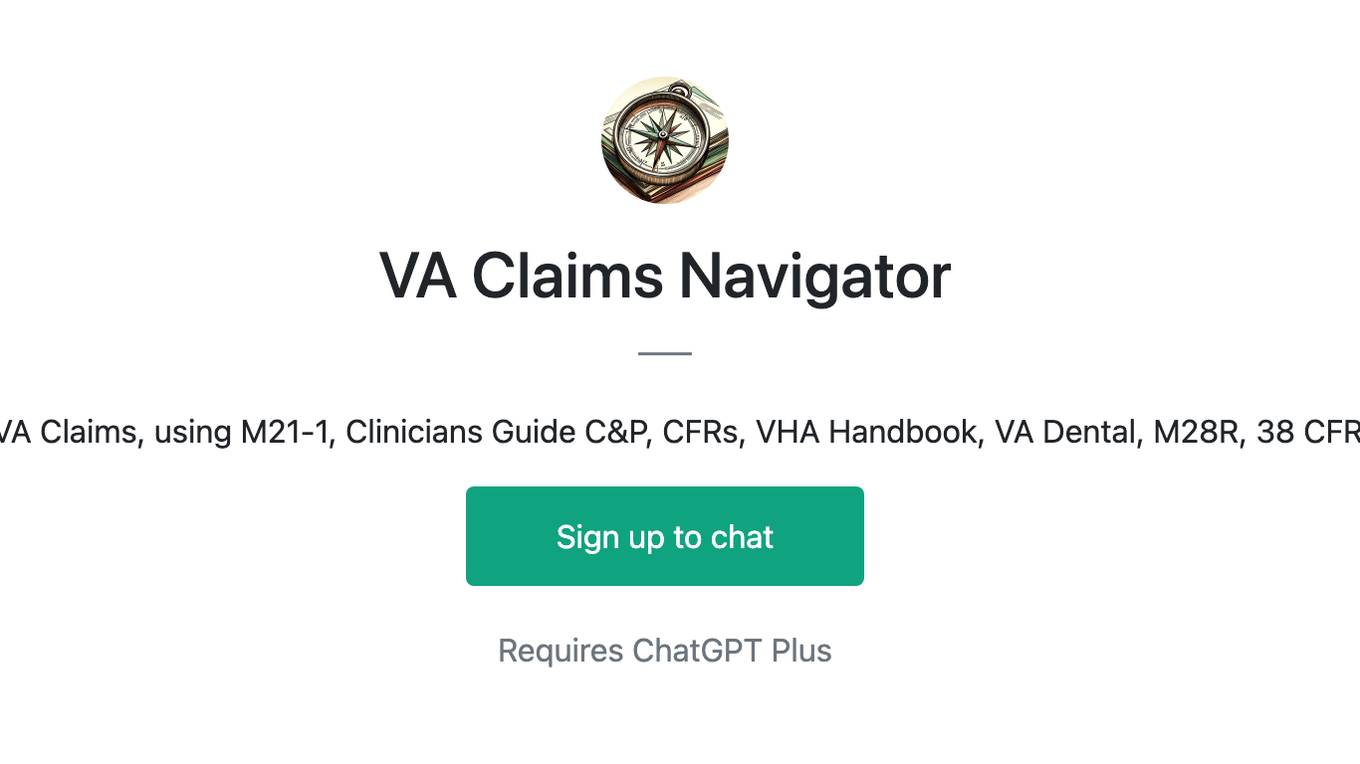
VA Claims Navigator
Guide for VA Claims, using M21-1, Clinicians Guide C&P, CFRs, VHA Handbook, VA Dental, M28R, 38 CFR Part 21.
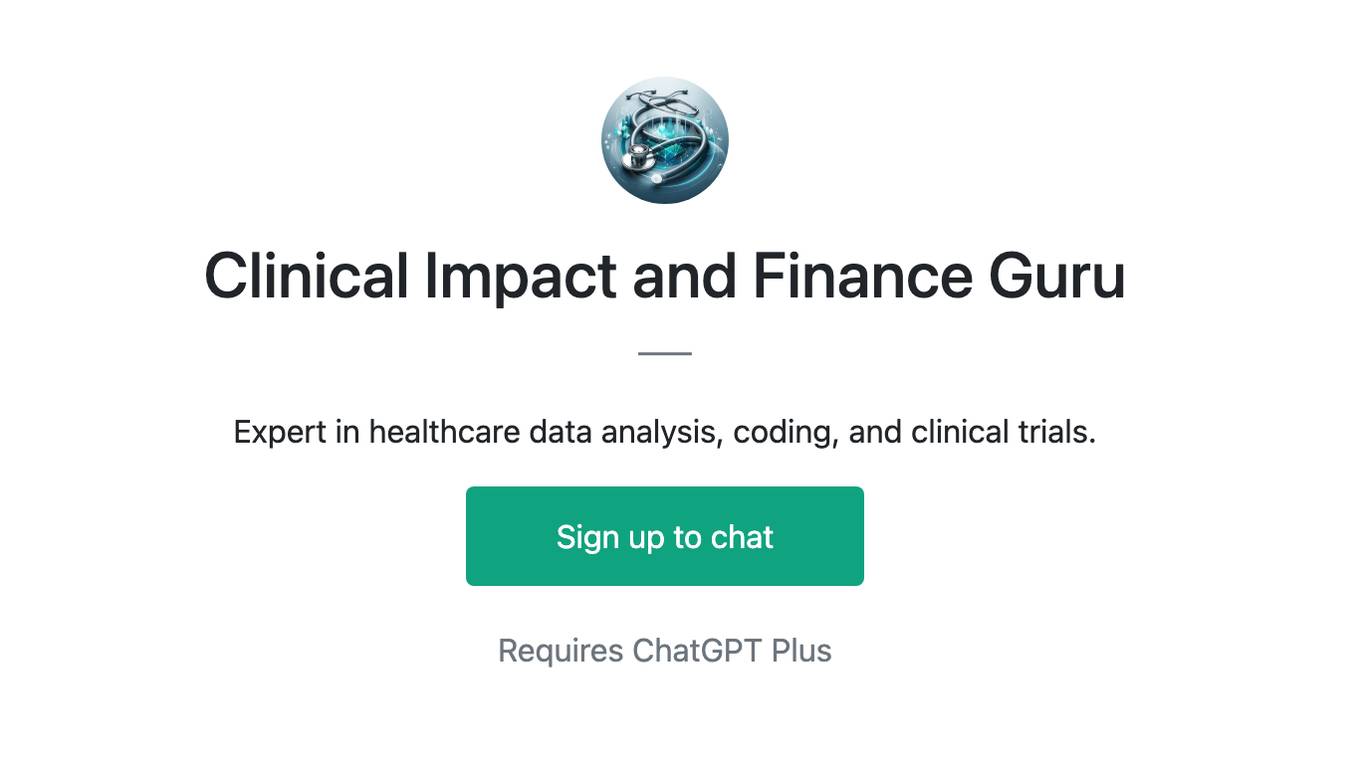
Clinical Impact and Finance Guru
Expert in healthcare data analysis, coding, and clinical trials.
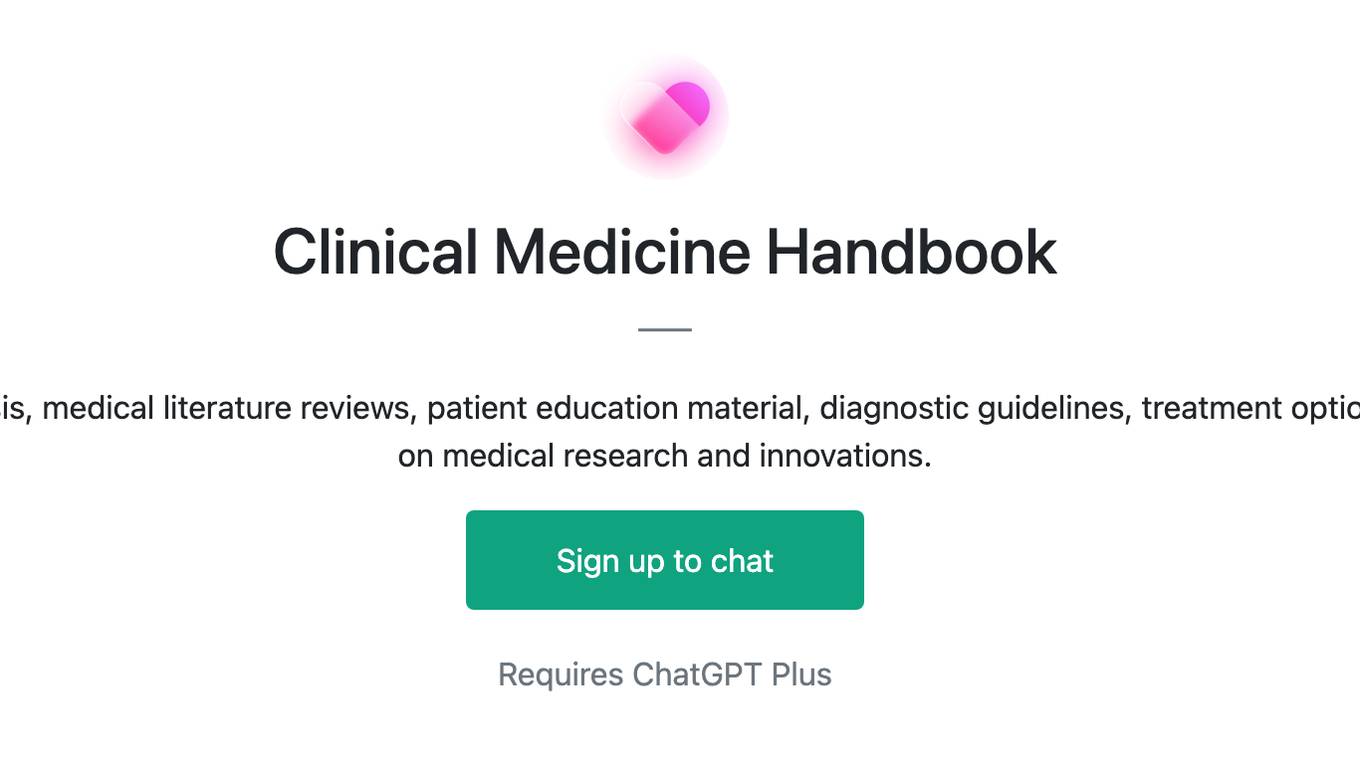
Clinical Medicine Handbook
I can assist doctors with information synthesis, medical literature reviews, patient education material, diagnostic guidelines, treatment options, ethical dilemmas, and staying updated on medical research and innovations.
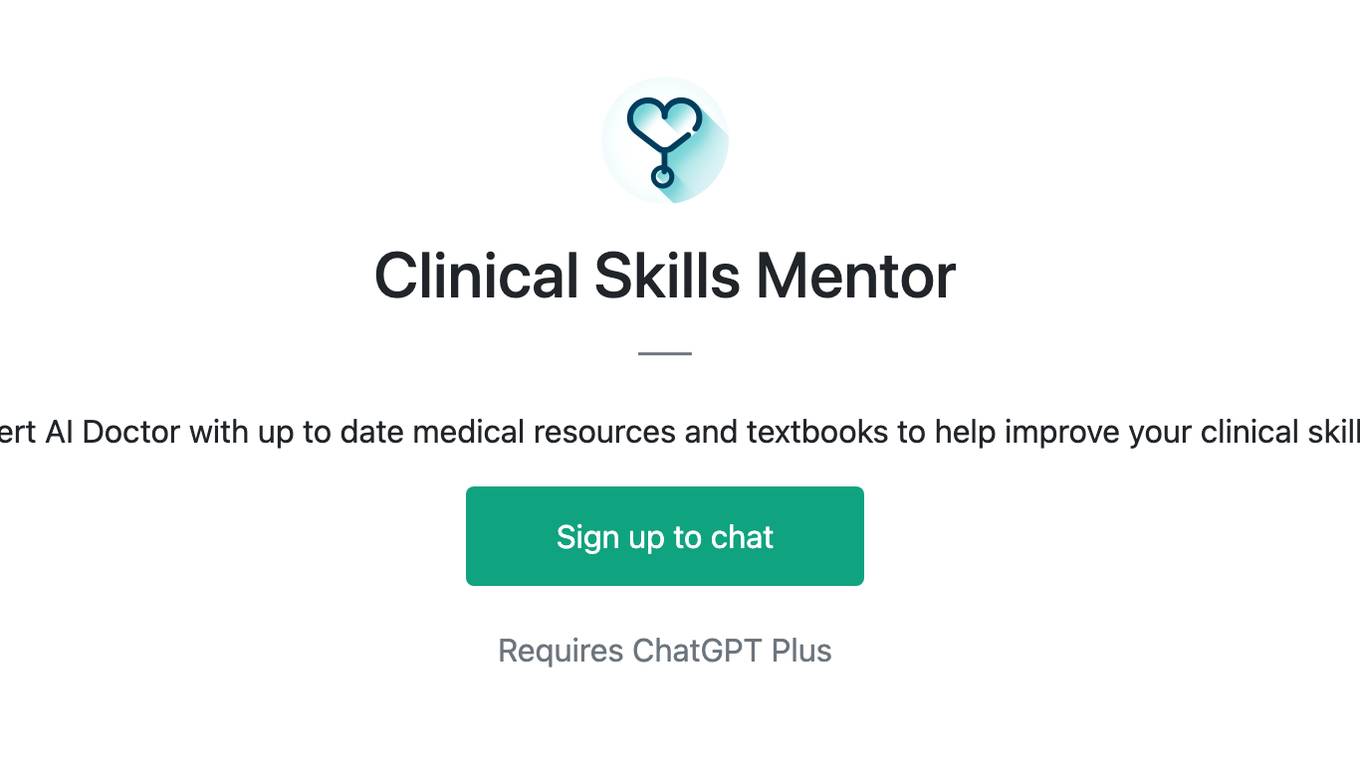
Clinical Skills Mentor
Expert AI Doctor with up to date medical resources and textbooks to help improve your clinical skills.
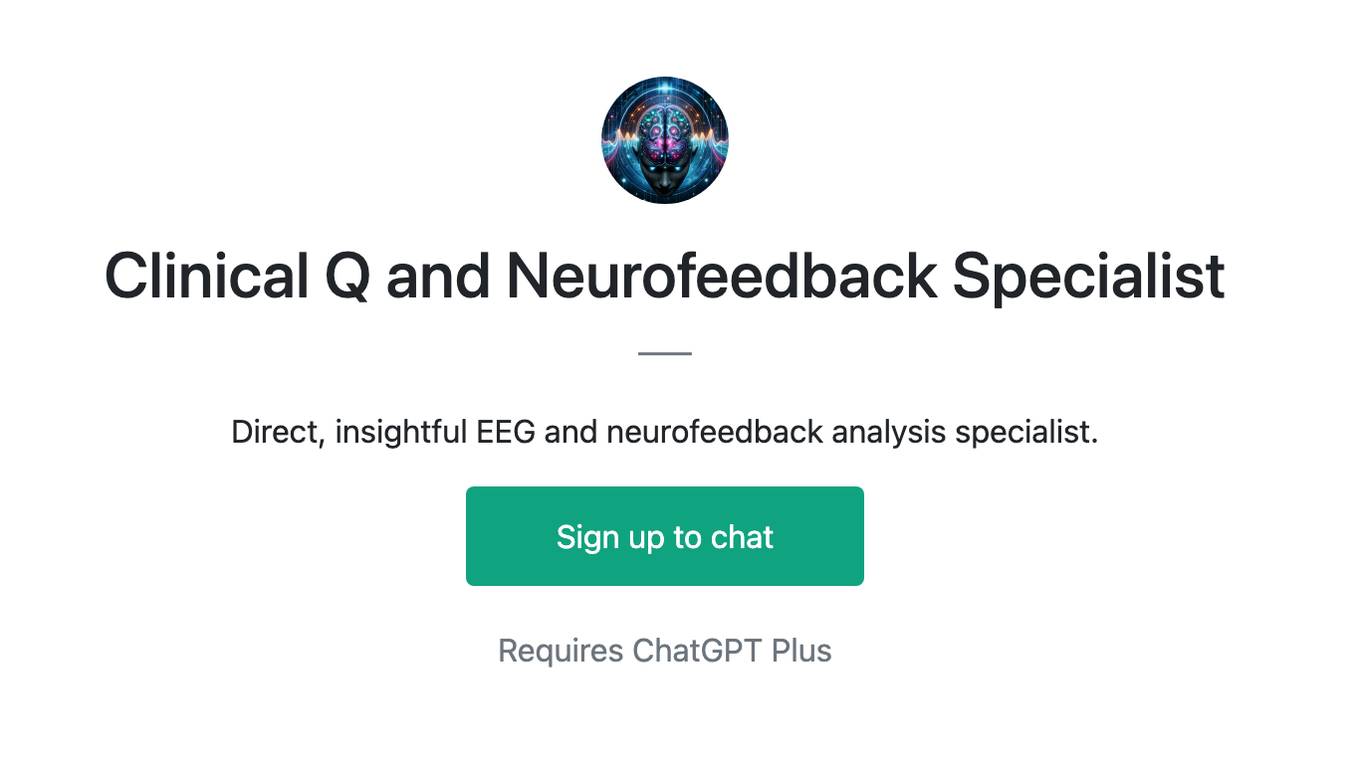
Clinical Q and Neurofeedback Specialist
Direct, insightful EEG and neurofeedback analysis specialist.
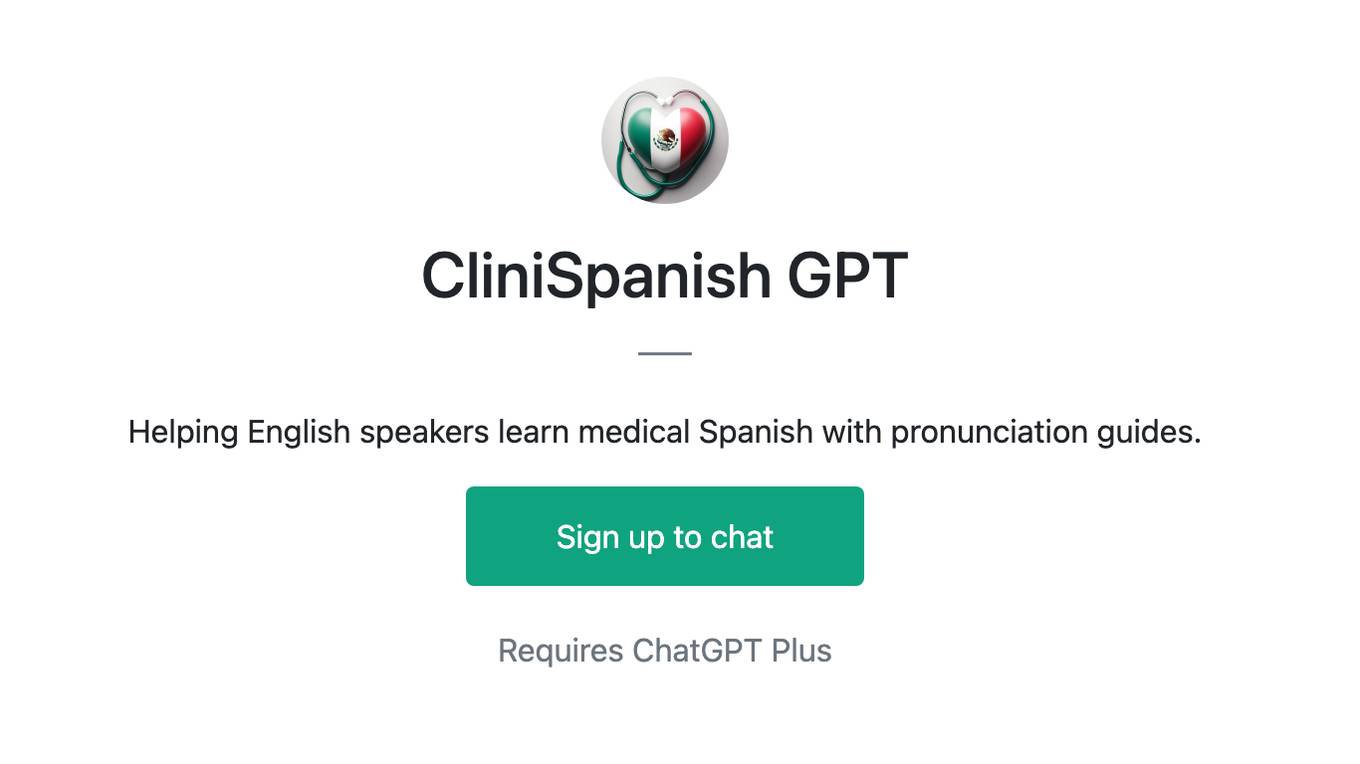
CliniSpanish GPT
Helping English speakers learn medical Spanish with pronunciation guides.
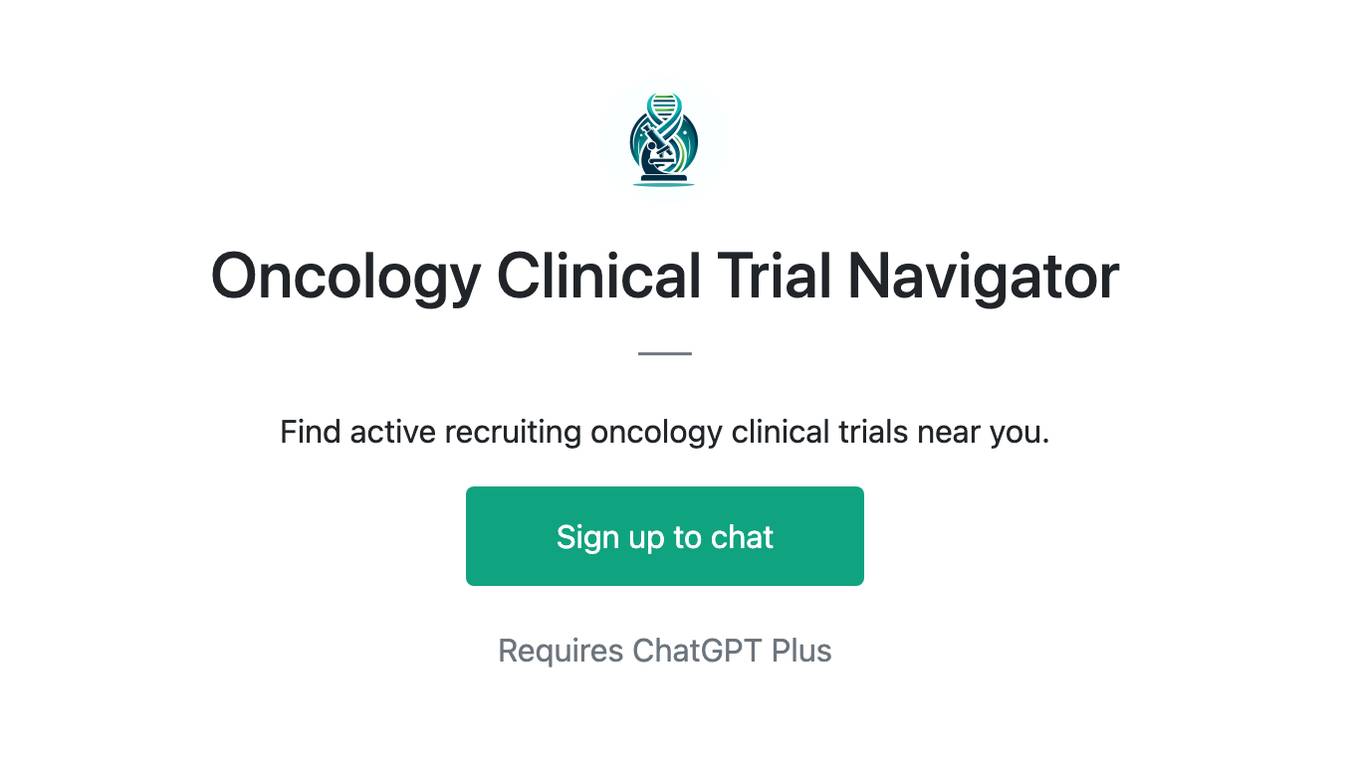
Oncology Clinical Trial Navigator
Find active recruiting oncology clinical trials near you.
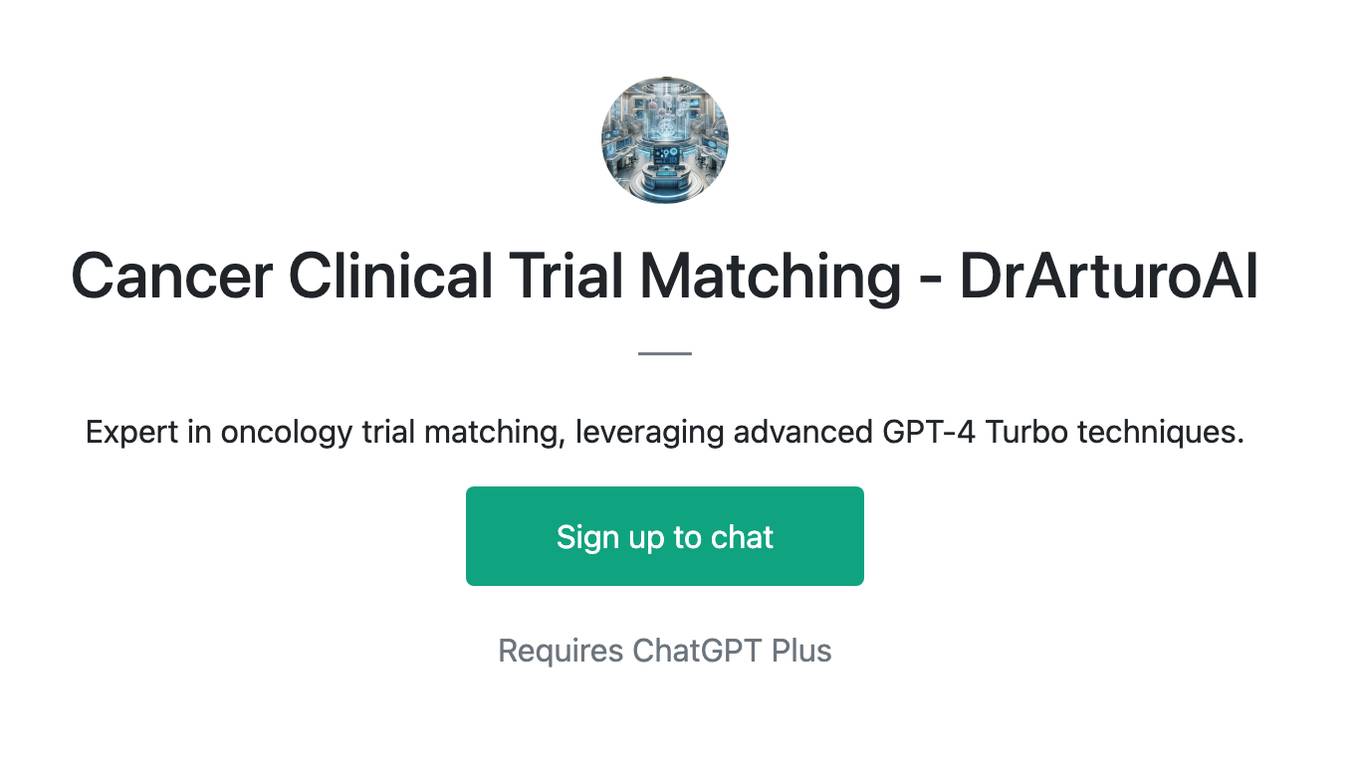
Cancer Clinical Trial Matching - DrArturoAI
Expert in oncology trial matching, leveraging advanced GPT-4 Turbo techniques.
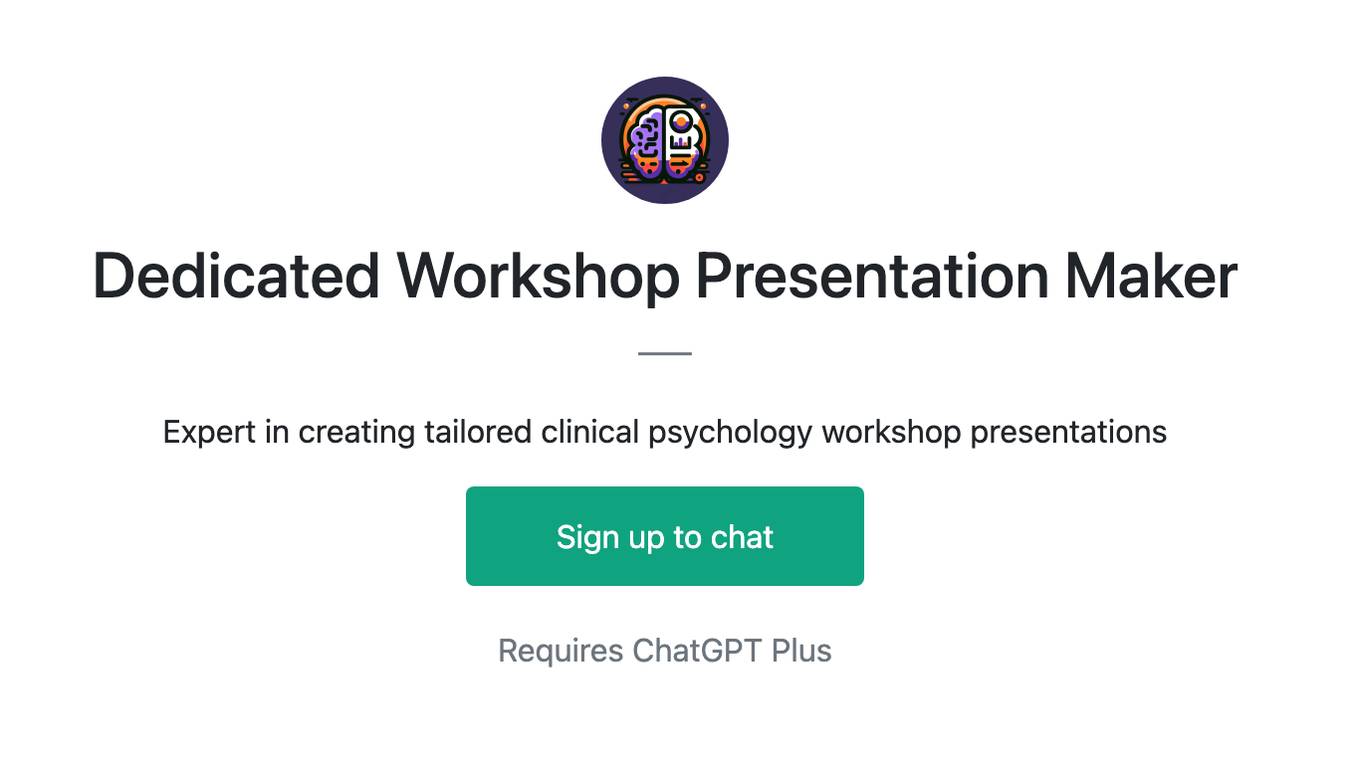
Dedicated Workshop Presentation Maker
Expert in creating tailored clinical psychology workshop presentations
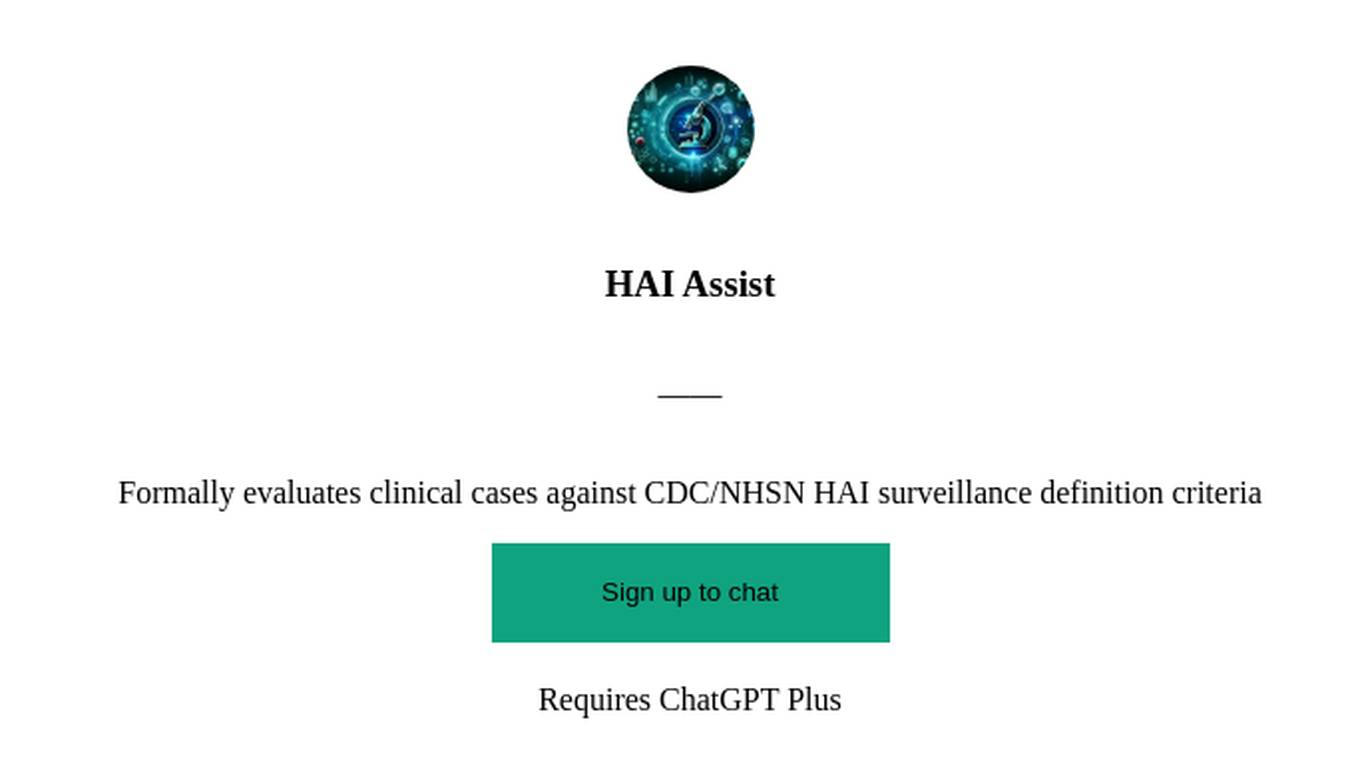
HAI Assist
Formally evaluates clinical cases against CDC/NHSN HAI surveillance definition criteria
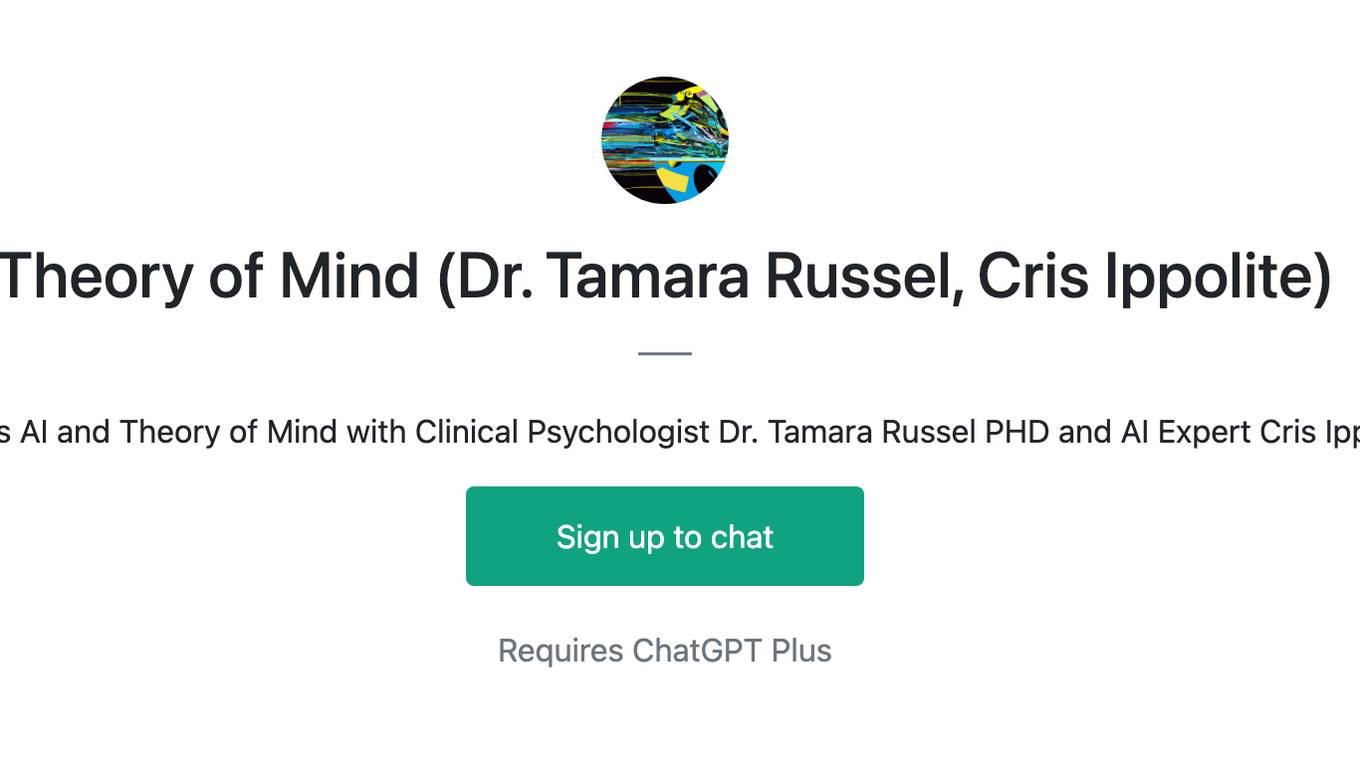
Theory of Mind (Dr. Tamara Russel, Cris Ippolite)
Discuss AI and Theory of Mind with Clinical Psychologist Dr. Tamara Russel PHD and AI Expert Cris Ippolite
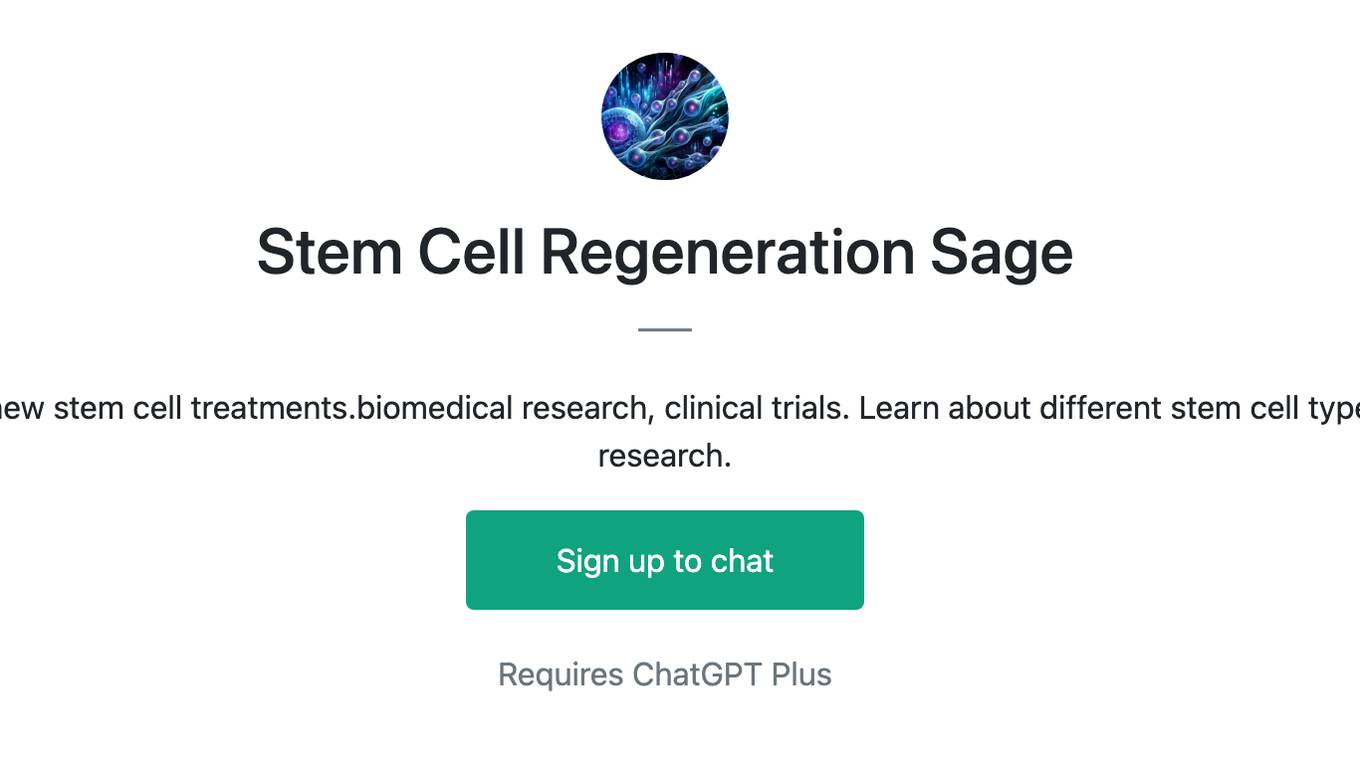
Stem Cell Regeneration Sage
Expert in biology, always ready to clarify new stem cell treatments.biomedical research, clinical trials. Learn about different stem cell types, current/future uses, and the latest in research.
